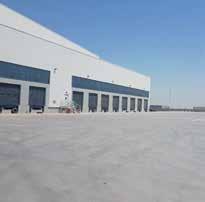

From Vision to Legacy: SSI SCHAEFER’s Path to Smarter, Sustainable Warehousing

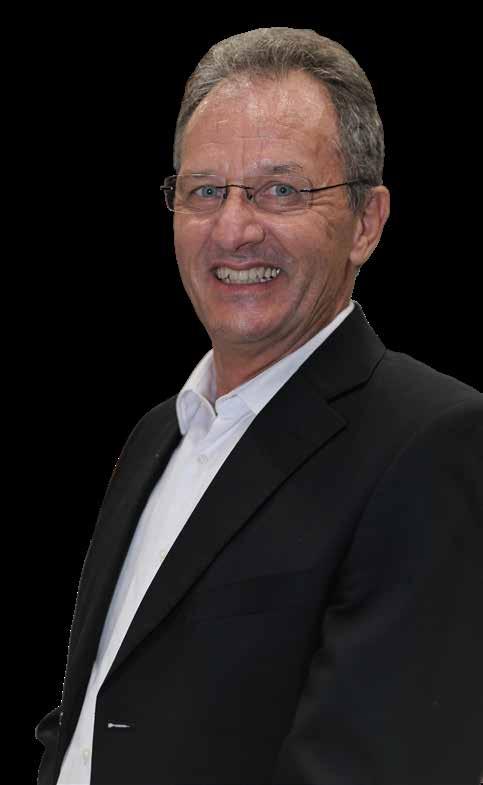
A tribute to Carsten Spiegelberg
Managing Director, Middle
SCHAEFER

Drive the road of change.
Full offering
- Full range vehicles with the most advanced technologies
- Highly customized product driven by market needs and optimized Total Cost of Ownership
High capillarity of aftersales
- Repair and Maintenance contracts and competitive warranty conditions
- Origin 100% IVECO Parts and a widespread network coverage

European technology
- High quality complete line-up in terms of tonnage, power, torque, safety, ergonomics
- High performance and robust trucks for extreme Off-road conditions
Customer centricity
- Comfort, ergonomics and the latest safety technology to make on board easier
- Driver Style Evaluation tool on Heavy ON-road range and optimized vehicle design to improve customer profitability


GSDP CERTIFIED













SIGNATURE MEDIA FZ LLE
P. O. Box 49784, Dubai, UAE
Tel: 04 3795678
Email: info@signaturemediame.com
Exclusive Sales Agent Signature Media LLC
P.O. Box 49784, Dubai, UAE
Publisher: Jason Verhoven jason@signaturemediame.com
Editor: Abigail Mathias abigail@signaturemediame.com
Art Director: Johnson Machado johnson@signaturemediame.com

Printed and Distributed by Masar Printing and Publishing L.L.C., Part of Dubai Media Incorporated Dubai, UAE
Contributor’s opinions do not necessarily reflect those of the publisher or editor and while every precaution has been taken to ensure that the information contained in this magazine is accurate and timely, no liability is accepted by them for errors or omissions, however caused. Articles and information contained in this publication are the copyright of Signature Media FZ LLE & SIGNATURE MEDIA LLC and cannot be reproduced in any form without written permission.
My favourite month of the year, is finally here. Not only is December a time for reflection, it also causes us to take stock of what one aspires for the year ahead.
For us in the UAE, we begin this month marking the 54th Eid Al Etihad taking place from 1-3 December. As the country takes on a festive spirit, this is also a time when supply chain industries both big and small, rightly reflect on the many achievements of this remarkable, young nation.
Our cover story is one that the team has taken to heart. We were devastated with the sudden passing of Mr. Carsten Spiegelberg, Managing Director, Middle East & Africa, SSI SCHAEFER, an industry automation expert, he left an invaluable lesson to us on life’s fragility. We’ve carried our last interview with him and dedicate this issue to his memory.
As you make your resolutions for the year ahead, make sure you spend time with loved ones. Forge new friendships, build new bridges and keep your hopes up. The best is yet to come.
A very Merry Christmas to all our readers.
Abigail Mathias Editor
abigail@signaturemediame.com www.globalsupplychainme.com

1500+
150+
Putting people first: SSI SCHAEFER’s legacy
Editor’s note: The following interview with Mr. Carsten Spiegelberg, Managing Director, Middle East & Africa, SSI SCHAEFER, was conducted before his passing. His insights and reflections are shared here in remembrance of his invaluable contribution to the intralogistics industry.
Global Supply Chain: How is SSI SCHAEFER addressing the rising demand for cold chain logistics amid global temperature shifts? Carsten Spiegelberg: There is a growing need by logistics companies to develop cold chain logistics infrastructure as to support the growth in online grocery shopping, particularly in perishable products, as well as temperature-sensitive products in the pharmaceuticals and life sciences sector. It is about understanding the customers’ intralogistics challenges and working with them to develop a long-term solution that best meets their material handling objectives. There are many tested and proven solutions that can be adapted for cold storage warehouses, from manual to semi-automated and fully automated, while maintaining system’s modularity and operational traceability and compliance.
GSC: Can you elaborate on how the SSI Exyz system enhances efficiency in high-bay cold storage facilities?
CS: Fully automated storage and retrieval machines (ASRS) like the SSI Exyz can be utilised in high-bay cold storage facilities up to -30°C and can go up to a height of up to 45 metres. The system is compatible for single-deep, double-deep, or multi-deep storage and retrieval, thus allowing to individually cater for the optimum configuration in terms of balancing performance and storage density. Coupled with the SSI Orbiter load handling device, it can be utilised as a single-boom or twin-boom machine. Also, the SSI Exyz is an energy efficient
solution. Compared to conventional ASRSs, companies can save up to 25% in energy savings for the lifting process. This is owing to our Green Crane Technology - moving counterweights integrated into the boom can be fitted and compensated for up to two thirds of the pallet truck’s own weight. Furthermore, the compact design of the system translates into more storage capacity while maintaining access to every pallet location. The high storage density is an enabler to enhancing operational efficiency for high-bay cold storage facilities. Its modular design enables shorter delivery and installation times and easy maintenance from the ground. It can also be easily integrated with SSI SCHAEFER ’s WAMAS Software Solutions or SAP’s logistics solutions, critical for maximum efficiency in warehouse operations.
GSC: What are the biggest challenges in balancing energy efficiency with storage density in temperaturecontrolled environments?
CS: Balancing energy efficiency with storage density in temperaturecontrolled environments is one issue. At the same time, we also need to find the right balance between performance and selectivity on one hand, and the need for high density on the other.
It is in the interest of any temperaturecontrolled facility to maximise capacity as much as possible to achieve high energy efficiency, i.e. loss of energy for cooling void volumes. Simultaneously, higher storage density reduces air circulation and may requires additional machine

cycles to access specific products – thus increasing energy consumption. Every storage facility requires an independent assessment of storage requirements, SKU range, and performance requirement to identify the individually best compromise between storage density, choice of handling equipment and energy efficiency. This should include the consultation of specialist refrigeration engineers at an early stage of a project.
Fully automated solutions like the ASRS combined with intelligent software, can additionally help to keep an operation energy-efficient while enabling high storage density.
It is essential for any cold chain businesses to evaluate which solution best fits your warehouse operations.

“The
SSI Exyz is an energy efficient solution. Compared to conventional ASRSs, companies can save up to 25% in energy savings for the lifting process.”
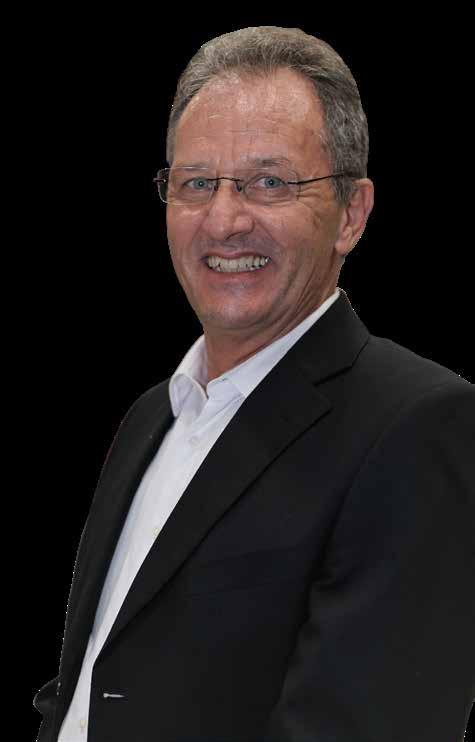
A tribute to Carsten Spiegelberg
Managing Director, Middle East & Africa, SSI SCHAEFER
GSC: What role does the UAE play in your global supply chain strategy?
CS: The UAE is an important market to SSI SCHAEFER, not only because of its geographical location, but it’s vision for logistics excellence. The UAE logistics ecosystem and forward-looking policies make it an ideal location for advancing automation and cold chain solutions that are critical for the region’s food security, pharmaceutical integrity, and retail growth.
From our Middle East and Africa headquarters located in Dubai, we can deliver projects efficiently, provide responsive customer support, and ensure seamless software deployment across the Gulf and beyond. Having local, on-the-ground expertise is critical in resolving our customers’ intralogistics challenges quickly and effectively.
The UAE’s commitment to developing advanced infrastructure and sustainability perfectly aligns with SSI SCHAEFER’s “Think Tomorrow” vision. It allows us to showcase what the next generation of intralogistics resilience looks like when you integrate hardware, software, and service excellence into one cohesive ecosystem.
GSC: How do you tailor automation solutions to meet the unique needs of emerging markets?
CS: Every market develops at its own pace, and at SSI SCHAEFER, our role is to meet the customers at where they are and support them in taking a modular approach towards automation. In emerging markets, flexibility and adaptability are key. We consider not just in deploying advanced technologies alone, but the local ecosystem where labour availability, infrastructure, energy costs, and skill deployment matter. That means designing scalable solutions that grow at their own pace and evolve in complexity as our customers’ businesses mature.
That’s because at SSI SCHAEFER, we invest in building long-term relationship with our customers based on trust. As a family-owned company, this value is deeply ingrained in the way we do business.
Further, our extensive portfolio and expertise across multiple market sectors allow us to design automation as a journey for all our customers. A relationship that’s built on collaboration, shared learning,
and continuous improvement. In this way, our customers can always rely on us to take their next step together toward a smarter, more sustainable, and datadriven logistics and supply chain.
GSC: What are the latest robotics innovations SSI SCHAEFER has introduced to improve warehouse agility?
CS: This year, SSI SCHAEFER has taken some major steps toward solutions that could address fast-changing markets such as retail, e-commerce, and cold chain logistics, where throughputs are critical.
One of the highlights is our FastBots Solution, a new generation of autonomous robots that roam freely between storage and workstations. They enable highly dynamic material flow without the constraints of fixed conveyors, thus giving warehouses the freedom to adapt their layouts and processes according to the market demands. Under the precise control of the intelligent fleet controller, the FastBots transport various load carriers, including trays, cartons, containers, and even polybags. It is an ideal solution for

“The SSI LOGIMAT® has resulted in increased throughput, improved picking accuracy with 100% picking selectivity, and enhanced order fulfilment.”
markets such as grocery, healthcare, and 3PL operations where product variety and order profiles change periodically.
We also expanded our RackBot Systems portfolio to include RackBot System Elevate that is capable of running vertically and horizontally across the racks. These systems are suitable for small parts storage where speed and accessibility are paramount.
Finally, our roaming shuttle solutions, which include 4D pallet and roaming tote shuttles, solutions that elevate the handling of pallet, tote, tray, and carton movements in all directions within the storage racks. This setup is ideal for regional distribution hubs and especially cold storage facilities where storage density, fast access to goods, and ergonomic order picking are key.
Altogether, these solutions redefine warehouse agility, not just via technology but by empowering all businesses to scale intelligently and respond faster to their customers’ demands.
GSC: How do smart warehousing solutions contribute to sustainability goals and resource optimisation?
CS: Smart warehousing drives sustainability and innovation in intralogistics. It’s not only about future-proofing for growing demand but also about environmental and social responsibility. Through automation and intelligent software, these systems make goods-flow clearer, reduce wasted movement, idle time, and excess inventory.
Software is the cornerstone of smart warehousing. Solutions like the WAMAS Software Suite can analyse processes, identify inefficiencies, and provide actionable insights for decision-making. These may seem like small processes, but it goes a long way in streamlining processes. Furthermore, it can even eliminate the

need for manual labour in certain tedious processes such as picking and sorting. It’s also only with software where we can analyse system data to predict and prevent equipment failures − or what we know as predictive maintenance. All these helps improve warehouse efficiency while reducing resources. Additionally, sustainability is embedded throughout our value chain. SSI SCHAEFER’s innovation strategy is aligned with global sustainability frameworks, including the UN Sustainable Development Goals (SDGs), ensuring every solution is responsibly sourced and energy efficient. It’s about continuous improvement and being a responsible corporate citizen.
Smart warehousing sets the path for improved material flow efficiency, increased profitability while advancing sustainability commitments.
GSC: Can you share examples of how your automation systems have delivered faster ROI for clients?
CS: SSI SCHAEFER’s automation solutions have consistently delivered faster ROI for clients across industries and markets.
Coop Sweden transitioned from manual operations to a 95% automated facility using the SSI Case Picking system. Robots now handle depalletising and palletising of storefriendly mixed pallets, centralising material flow for both ambient and fresh goods. This shift has significantly improved operational efficiency, reduced energy consumption, and enhanced workforce productivity.
In Southeast Asia, Thai automotive spare parts distributor Chin Seng Huat has invested in a total semi-automated solution, including the SSI LOGIMAT, carton and bin conveying systems, the Mobile Racking System, and a Mezzanine system. This has
“Our momentum is our people. Across the Middle East, we are seeing incredible growth potential, and our team is motivated by the opportunity to shape the region’s logistics transformation.”
resulted in increased throughput, improved picking accuracy with 100% picking selectivity, and enhanced order fulfilment. Closer to home, our partnership with Noatum Logistics, a subsidiary of AD Ports Group, resulted in the largest mobile racking installation for deep-freeze cold rooms in the UAE. At the KEZAD KLP21 hub, storage capacity rose by over 90%, while cooling efficiency and safety were enhanced through PLC-enabled fail-safes.
These examples demonstrate how SSI SCHAEFER’s semi- and fully automated systems not only accelerate ROI but also support long-term competitiveness, sustainability, and operational excellence.
GSC: What trends do you foresee shaping the future of intralogistics and supply chain automation?
CS: The frontier of intralogistics lies at the intersection of agility and intelligence augmented by robotics, and we are already seeing the building blocks emerging. First, the ubiquity of connected systems and intelligent networks means the ‘Warehouse of the Future’ no longer functions independently, but rather as an ecosystem that is adaptable and ‘buildable’.


Next, we are seeing a shift in how automation is being adopted. It isn’t all about a ‘big bang’ approach, but rather, a modular and incremental rollout in phases. This is particularly important to the emerging markets and companies that favour lower upfront investments and agile response to environmental demands.
That said, while roaming shuttles, AMRs, and AGVs are becoming more common for their flexibility and low entry cost, reliability and system longevity remain non-negotiable. Traditional ASRS stacker cranes would continue to be the backbone of high-performance warehouses because they offer unparalleled longevity, precision, uptime, and safety – especially in temperature-controlled and missioncritical environments. These proven systems are scalable and seamlessly integrated into intelligent software, which makes them the preferred choice for operations that demand long-term reliability and predictable performance. Eventually, we believe that the future isn’t about choosing one technology over another. It is to design the right blend of automation that balances
innovation and trust. At SSI SCHAEFER, our focus has always been on building systems that not only meet today’s demands but continue to deliver value and support in the decades to come.
GSC: How is SSI SCHAEFER preparing for the next wave of digital transformation in logistics?
CS: Digital transformation is reshaping logistics, and intralogistics is at the heart of this evolution. At SSI SCHAEFER, we are preparing by developing solutions that empower customers to stay ahead—making operations more efficient, flexible, and scalable to meet dynamic market demands. We are integrating key technologies such as artificial intelligence (AI), Internet of Things (IoT), and robotics to enable real-time visibility, predictive analytics, and automated decision-making. These innovations allow warehouses to achieve smarter inventory control, optimised workflows, and improved responsiveness.
Across the organisation, we are ramping up testing efforts in areas such as AI in a safe and responsible
manner, ensuring full compliance with EU regulations such as the General Data Protection Regulation and the EU AI Act. SSI SCHAEFER strives to deliver futureready solutions that help customers achieve operational excellence.
GSC: SSI SCHAEFER has been at the forefront of supply chain innovation—what’s driving your team’s momentum right now?
CS: What drives us today is Purpose. Innovation in SSI SCHAEFER is more than just advanced technology for its own sake. Whether it is a straightforward semi-automated solution in improving cold chain reliability, or enabling a highly complex e-commerce fulfilment solution, every system that the team designs begin with understanding our customers’ realities. Being a family-owned company gives us the freedom to think long-term, where we value relationships and invest in systems that withstood the test of time. Our Purpose and Our People, I believe is the formula that keeps us moving forward with agility that is grounded in experience and trust.



GWC showcases innovative logistics solutions for the energy sector
Gulf Warehousing Company Q.P.S.C (GWC) — one of the leading logistics service providers in the Middle East and North Africa — showcased its leadership in the energy services sector and its strategic vision to strengthen its position as a regional and global leader in logistics and supply chain solutions, through its participation in the Abu Dhabi International Petroleum Exhibition and Conference (ADIPEC) 2025.
The event took place from 3 to 6 November at the Abu Dhabi National Exhibition Centre (ADNEC), Hall 16, Stand 16055. Matthew Kearns, Acting Group CEO of GWC, stated that the company’s participation in this international event is primarily focused on innovation, technology, and sustainability, in line with clients’ growing demand for more efficient and reliable solutions. He emphasized that this approach further strengthens GWC’s position as one of the leading integrated service providers in the region’s energy sector.
“GWC’s participation in ADIPEC coincides with the implementation of an expansion strategy across the GCC, under which the company has recently opened branches in Dubai, Abu Dhabi, and Sharjah. This move comes as part of our broader plan to strengthen our regional presence and extend our portfolio of advanced logistics solutions. GWC currently provides its services across all ports in the UAE, Bahrain, and Qatar, reflecting the company’s strong operational capabilities and fully integrated logistics network that efficiently and flexibly supports energy, oil, and gas operations across the region.” He added:
Kearns emphasised that GWC showcased its innovative logistics solutions for the global energy industry during its participation in the event. He noted that the GWC brand stands for flexibility, readiness, and reliability, as the company continues to develop cutting-edge solutions that meet the evolving needs of its partners across every stage of the energy supply chain. He added that participating in ADIPEC 2025 provides a key platform for highlighting GWC’s latest innovations and

services and for engaging with global industry leaders, reaffirming the company’s ongoing commitment to contributing to a more sustainable and efficient future for the energy sector, and advancing a path of shared growth and progress.
GWC adheres to the highest global sustainability standards, reaffirming its commitment to driving positive change, promoting responsible logistics practices, and contributing to sustainable development. Through initiatives aimed at reducing emissions, optimizing energy consumption, and advancing green storage solutions, the company continues to align its operations with international sustainability benchmarks and the principles of Environmental, Social, and Governance (ESG) excellence.
As the company continues its rapid growth, safety remains at the core of GWC’s logistics operations, with its comprehensive safety programs, ongoing
training initiatives, and advanced monitoring systems underscoring a steadfast commitment to protecting people, assets, and the environment.
ADIPEC 2025 is held under the patronage of His Highness Sheikh Mohamed bin Zayed Al Nahyan, President of the United Arab Emirates, and brings together global leaders from across the energy, industrial, and technology sectors to discuss the future of these vital industries.
The event welcomed over 205,000 visitors from more than 172 countries, along with 2,250 exhibiting companies and 1,800 speakers, including a wide range of industry leaders, investors, innovators, and policymakers who will explore new opportunities and accelerate the development and adoption of solutions shaping the future of the energy sector.
The upcoming edition of ADIPEC, held under the theme “Intelligent Energy for a Faster Future,” featured over 380 sessions, where global leaders and policymakers will convene to address key challenges across emerging economies, natural gas, refining and manufacturing, diversity and leadership, as well as artificial intelligence and digital transformation. The event also hosted the world’s largest technical conference, with the participation of more than 1,100 industry experts.
The exhibition featured the participation of 54 national and international energy companies and 30 international pavilions, in addition to four dedicated zones focusing on digital transformation, emissions reduction, marine operations, and artificial intelligence. As part of the event, a new platform for chemicals and low-carbon solutions was also launched.
Matthew Kearns, Acting Group CEO of GWC
GoComet redefines supply chain intelligence with AI at Odyssey Dubai 2025
Against the backdrop of Dubai’s awe-inspiring skyline, GoComet hosted ‘Odyssey Dubai 2025’ at The St. Regis hotel, marking the 8th edition of their supply chain innovation summit. Global Supply Chain brings you the exclusive details.
The event gathered 70+ leaders from Novartis, Henkel, L’Oréal, Goodyear, Max Retail, and more, to explore how technology is transforming GCC supply chains. It also marked a milestone for GoComet with the launch of Agentic AI, advancing its vision for intelligent, autonomous, and resilient logistics ecosystems.
Building with purpose:
The GoComet story
GoComet’s journey began with a simple conviction, to transform how logistics decisions are made and bring clarity to an industry once shrouded in mystery. As CEO, Chitransh Sahai recalls, the company’s early days were defined by late-night coding sessions in shared workspaces, united by a vision to make global supply chains transparent, intelligent, and connected.
What began as an effort to simplify logistics complexities has evolved into a global logistics intelligence platform, one built on purposeful technology and a deep understanding of how businesses move the world.
Even through the rough times, like the pandemic, the company stayed true to its mission, turning chaos into clarity through automation. The company today continues to redefine how supply chains think, act, and evolve autonomously, with Agentic AI.
Trusted by 500+ global brands including Unilever, Al Khayyat, ETG World, Qatar Airways, Himalaya Wellness, and many more across 70+ countries, GoComet unifies data, automates workflows, and integrates seamlessly with leading ERP systems. Headquartered in Singapore, GoComet is on a mission to simplify global logistics – making it more transparent, resilient, and intelligent.
Driving efficiency through automation: Keynote insights
The keynote address was delivered by Mohamed Ismail, Head of Manufacturing Capability, and Ma’an Felemban, Head of Logistics at GoodyCo (Basamh Group).
The duo walked the audience through Basamh Group’s journey towards building a digitalized, disruption-proof, and resilient supply chain.
With a legacy spanning over six decades, the company manages 6,000+ containers annually from 70 manufacturing sites in 25 countries through more than 60 ports worldwide. But with such scale comes complexity, and as Felemban noted, “In logistics, Murphy’s Law always applies. If anything can go wrong, it will.”
Today, Basamh Group has unified its operations by connecting GoComet with
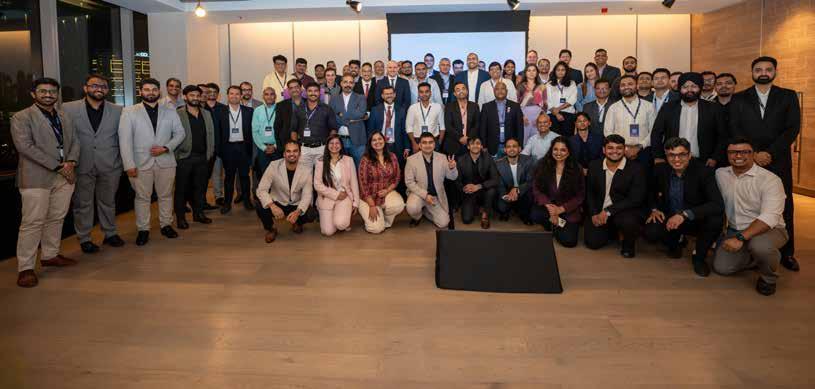
“Whatever product we build, it has to solve this individual’s tedium. It has to get them out from their routine, mundane tasks, and empower them to strategically contribute to the business. This is what makes me get up every day to build GoComet.”
— Chitransh Sahai, CEO, GoComet
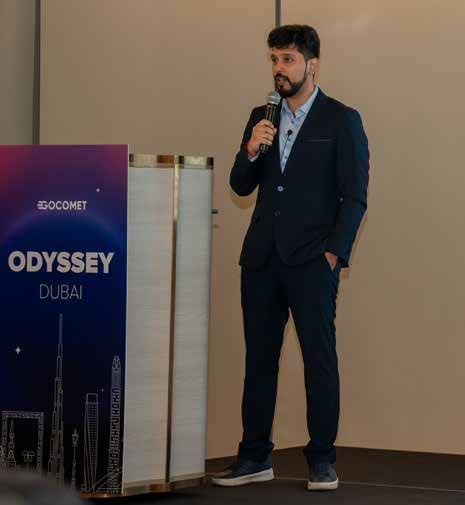
its existing ERP and supply chain software. This seamless integration has automated nearly 60% of their core processes, ensuring data consistency, faster collaboration, and end-to-end visibility across procurement, planning, and logistics.
Mohamed Ismail reflected on the transformation: “What we were able to do is use GoComet as the central nervous system of our logistics. It literally became a logistics operating system for us — a full 360-degree ecosystem handling all tasks
and processes in one place.”
Predictive alerts and real-time visibility have equipped the group to navigate port strikes in Northern Europe, Red Sea congestion, and regulatory changes with agility, shifting from monthly reaction cycles to real-time planning.
Their “ADAPT” strategy — Active collaboration, Digital integration, Agility, Predictive analytics, and Talent building — now serves as the cornerstone of their supply chain vision. As Ismail
emphasised, “Resilient supply chains aren’t built in calm times; they’re built through disruption. Every challenge teaches us to bounce back stronger, faster, and smarter.”
Both speakers emphasised that AI and automation empower, not replace, teams — freeing personnel from routine firefighting to focus on proactive, strategic decisions. Reflecting on lessons from the pandemic, they highlighted how resilience comes from learning, adaptability, and a strong digital backbone.
Looking ahead, Basamh Group aims to further leverage AI and predictive analytics to enhance agility, performance, and disruption management — continuing its journey towards a smarter, data-driven supply chain.
The product demo
In a fitting finale to Odyssey Dubai 2025, Sahai, took the stage to showcase how AI is no longer a concept for the future but is actively transforming logistics today.
Launching a new part of their ecosystem, Agentic AI, he highlighted how GoComet’s technology can understand user intent, extract insights from emails and PDFs, recommend the next best steps, identify risks, and trigger workflows across systems, completely without manual intervention.
He also unveiled the Incidents Lens, GoComet’s latest advancement in realtime risk monitoring across the globe. The solution integrates live port, weather, and geopolitical data with your shipment data, enabling companies to anticipate disruptions, assess risk exposure, and make informed decisions in real time.
A glimpse into the future of supply chain AI
Odyssey Dubai offered a preview of how Agentic AI will transform logistics from reactive coordination to autonomous execution. Through GoComet’s suite of solutions, businesses now gain predictive risk control and contextual visibility.
The future of supply chains lies in building intelligent systems. AI that learns, adapts, and acts on your behalf, enabling businesses to reduce lead times by 20 percent, and cut costs by nearly 25 percent.
The next frontier in logistics innovation is not manual, it’s mindful.
Chitransh Sahai, CEO, GoComet at the event
The Rise of the UAE’s Renovation Economy
A quiet transformation is reshaping homes across the UAE. The country’s property sector, long defined by rapid growth and new developments, is entering a new era, one centred on renovation, retrofitting, and responsible design.
The home renovation market, valued at around USD 32.4 billion in 2024, is projected to reach USD 42.6 billion by 2030, growing at a steady rate of 4.7 percent per year (PS Market Research, 2025). This growth reflects a shift in mindset, as homeowners and investors move beyond aesthetics and location to focus on performance, sustainability, and smart functionality.

This “renovation economy” aligns perfectly with the UAE’s long-term sustainability goals. National initiatives such as the UAE Net Zero 2050 Strategy and the Dubai Clean Energy Strategy 2030, which aims for a 25 percent share of clean energy by 2030 (DEWA, 2024), have created strong incentives for greater efficiency across all sectors, including housing. Until recently, most renovations in Dubai or Abu Dhabi were aesthetic, new marble, lighting, or cabinetry. Today, the motivation runs deeper. Homeowners are asking how to reduce their water and energy use while maintaining comfort and design quality.
“Abu Dhabi’s Department of Energy recommends reducing electricity consumption by 22 percent by 2030”
The environmental stakes are significant. The UAE consumes roughly 9 billion cubic metres of freshwater annually, and desalination, which provides most of the country’s supply, requires about 25 terawatt hours of electricity each year (MDPI Sustainability Journal, 2024). Every litre saved lower both carbon emissions and costs. The market for efficient fixtures and smart systems is expanding quickly. Modern flow regulators and aerators can reduce water consumption by up to 50 percent without affecting pressure, while cold-start mixers eliminate unnecessary heating. Over time, a single household can save tens of thousands of litres, a meaningful difference in a desert climate.
Digitalisation is accelerating this change. Smart thermostats, motion-sensing lights, and leak-detection systems have become standard features in many mid- to highend renovations. What began as a luxury
is now mainstream, because the benefits are immediate: control, visibility, and lower utility bills. These advances align with the UAE’s smart-city agenda. As urban infrastructure becomes increasingly connected, households are embracing the same technologies. A home that learns user habits, monitors consumption, and prevents waste is fast becoming the new standard for modern living.
The country’s design scene is evolving in parallel. Architects and interior designers are embracing natural materials, minimalist layouts, and energy-efficient lighting to reduce cooling demand and create calm, sustainable spaces. Sustainability has become a design language in itself, one that conveys modernity and responsibility in equal measure. Regulatory initiatives reinforce this direction. Sustainability and liveability are core pillars of Dubai’s 2040 Urban Master Plan, while Abu Dhabi’s Department of Energy recommends reducing electricity consumption by 22 percent by 2030 (DoE, 2024). What was once aspirational is now an operational standard; every renovation permit and material specification carry an environmental responsibility.
The strength of this new renovation wave lies in collaboration. Policymakers, architects, developers, and technology providers are working together to embed sustainability into every phase of the home’s lifecycle, from planning and specification to installation and education. At LIXIL, we see this shift as part of a broader regional movement. Through the GROHE brand, we support homeowners and professionals with waterefficient and intelligent fittings that combine design, performance, and sustainability. By aligning global expertise with local codes, the private sector can help accelerate progress toward national targets without compromising comfort or aesthetics.
Guest Column by Stefan Schmied, Leader IMEA, LIXIL International

Efficient Logistics
Begins With Automated Picking
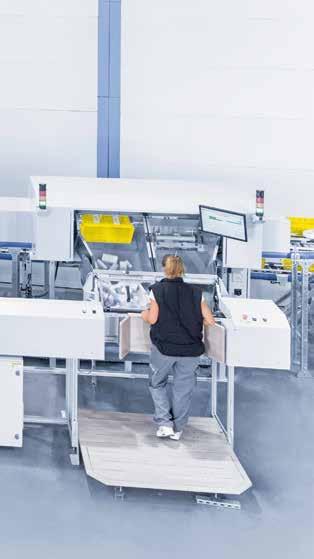
Smarter Picks, Perfect Sorts With A-Frame & Order Verifier
Automate
Stay ahead with automation.
Smoother day-to-day workflow
Delivers consistent and accurate picks
Maximize space utilization
Eliminates time-consuming and labor-intensive picking
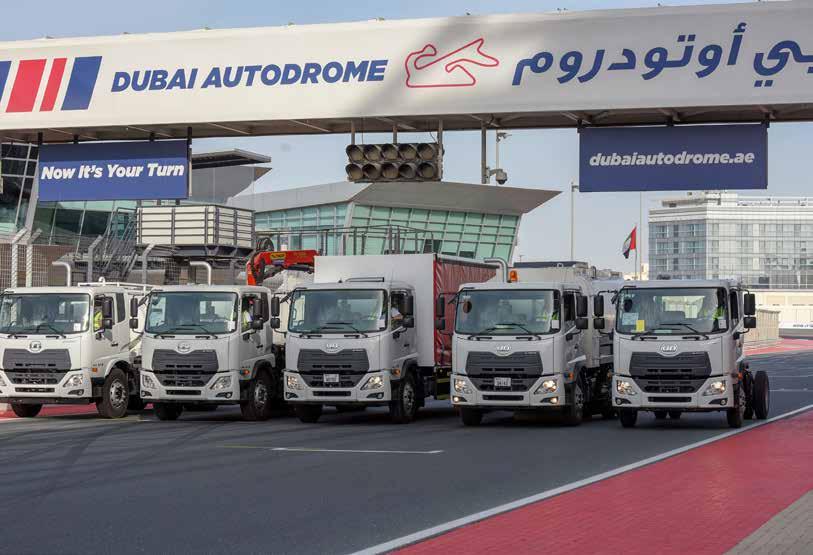
Allison Transmission accelerates growth with new fleet wins in the GCC region
In partnership with UD Trucks, a leading Japanese OEM, Allison Transmission is accelerating its market penetration in the Gulf Cooperation Council (GCC) region with a series of municipal and commercial vehicle fleet wins across the United Arab Emirates (UAE), Oman, Bahrain and Kuwait.
In the UAE, more than 200 Allisonequipped trucks are already in service, with a further 50 units scheduled for delivery in 2025 to support ongoing municipal projects. In Kuwait, Allison has achieved a milestone with its first-ever tender win in the country, supplying 16 UD Croner trucks for a key waste management initiative. In Oman, a leading waste management company has ordered more than 60 UD Croner trucks fitted with Allison transmissions, expected to enter operation in 2026. Meanwhile, in Saudi Arabia, Allison’s technology continues to demonstrate its versatility, with over 50 trucks currently operating within a Fast Moving Consumer Goods (FMCG) distribution fleet and more than 40 additional units scheduled for delivery soon.
The surge in demand reflects the GCC’s drive to modernise waste management fleets in response to growing urban
populations, rising service expectations and the challenges of high-frequency, stop-start collection in extreme temperatures.
Allison’s 3000 Series transmission installed in the UD Croner PKE model and the 2500 Series transmission installed in the UD Croner LKE model are engineered to handle these demands. The torque converter boosts engine torque at launch, delivering stronger low-speed driving performance, while Continuous Power Technology™ ensures uninterrupted power delivery and a smooth drive for the driver and vehicle. The fully hydrodynamic torque converter without mechanical clutches results in less wear and tear on all parts of the drivetrain and therefore reduces costly breakdowns and repairs, reducing downtime.
“Waste collection in the Middle East presents unique operational challenges, from extreme heat to constant stop-start driving,” said Muhammad Ibrahim Khan,
Allison Transmission’s Area Manager for Middle East & Pakistan. “Our partnerships with fleet operators and OEMs like UD Trucks show how Allison’s technology is enabling cities and service providers to deliver reliable, efficient services.”
Since 2020, hundreds of UD Croner trucks featuring Allison transmissions have been sold across the GCC for urban waste collection tenders and FMCG distribution, a milestone that reinforces Allison’s role as a preferred technology partner for both municipal and commercial fleets. These vehicles continue to perform reliably in challenging conditions, underscoring the brand’s reputation for durability and efficiency.
Allison Transmission remains committed to supporting fleet operators with innovative driveline solutions that enhance reliability, lower operating costs, and contribute to sustainable infrastructure development across the region.





AEDLER Logistik Solutions and KNAPP revolutionise healthcare logistics
In the Middle East, where healthcare markets are rapidly expanding, pharmaceutical distributors are under growing pressure to deliver medicines quickly and accurately while meeting strict regulatory requirements. AEDLER Logistik Solutions, in partnership with global automation leader KNAPP, is responding to these challenges by introducing state-of-the-art automated storage and retrieval systems (ASRS) designed specifically for the pharmaceutical sector.
Traditional manual processes in pharmaceutical distribution can no longer keep pace with rising demand, complex inventory, and strict quality standards. KNAPP’s portfolio of automated systems offers an advanced solution, ensuring that pharmaceutical distributors operate with unmatched reliability and accuracy.
Automated storage and retrieval solutions
The Central Belt System is a comprehensive solution for pharmaceutical distribution centers that not only increase productivity, but also throughput and picking performance in a relatively small space.
This system mitigates the effects of peak workloads and allows resources to be put to best use. The KNAPP-Store is a sophisticated and innovative system for storing and picking single items. It covers everything from automatic goods-in to automated processes and stock management – all while keeping investment and storage location costs low. By combining this system with the Central Belt System, customer orders can be fulfilled faster. Equipped with various grippers and AI-based object recognition, the Pick-it-Easy Robot recognizes the
items and calculates the perfect gripping points. The articulated-arm robot safely grips items of various sizes, weights, shapes and packaging. Shuttles solve material handling challenges through space optimization and cutting-edge material flow solutions and are the right choice for logistics applications demanding the highest performance in order fulfillment. Its modular design allows warehouses to expand capacity without disruption, accommodating both steady growth and sudden surges in healthcare needs. Beyond efficiency and accuracy, these

innovative systems also contribute to a safer and more sustainable workplace. By automating repetitive and physically demanding tasks, employees are free to focus on quality assurance and other value-added activities.
Your partner for Pharma Handling Automation
AEDLER Logistik Solutions combines local expertise and deep understanding of Middle East healthcare logistics with KNAPP’s global leadership in intelligent automation. Together, they deliver tailored solutions that integrate seamlessly into pharmaceutical supply chains. Automated storage and retrieval systems are no longer optional but a necessity for companies looking to stay competitive. With AEDLER Logistik Solutions, pharma distributors in the Middle East can achieve new standards of efficiency, compliance, and scalability, ensuring that medicines reach patients quickly, safely, and reliably.

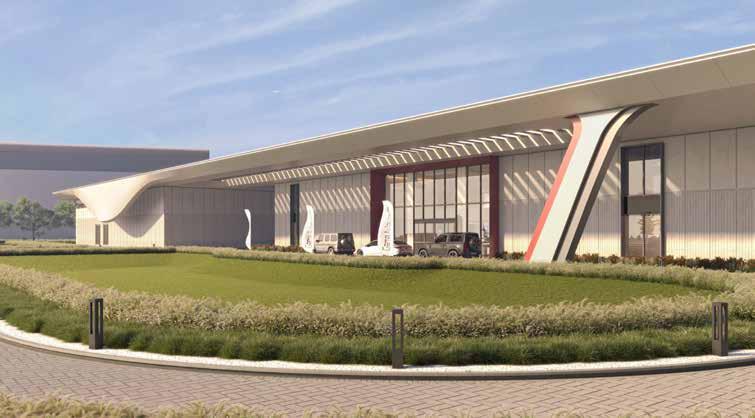
Gama Aviation develops state of the art BAC at Sharjah International Airport
Sharjah’s strategic location places it within an eight-hour flight radius of more than 5.4 billion people, connecting major markets across Europe, Asia, and Africa.
Gama Aviation’s new Business Aviation Centre (BAC) at Sharjah International Airport represents a defining step forward for private aviation in the UAE — combining a purpose-built design, operational efficiency, and refined luxury in one seamless experience.
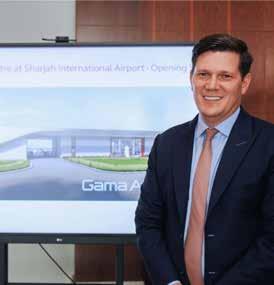
The company has invested over $65 million in the facility, which is designed ground up, for the exclusive use of the business aviation and private jet traffic.
Global Supply Chain visited the facility recently. Scheduled for completion in early 2026, the Business Aviation Centre occupies a site of over 80,000 square metres within the Sharjah International Airport estate. The development supports the emirate’s infrastructure and diversification objectives, aligned with the UAE’s Vision 2030 roadmap for sustainable growth and connectivity.
Unlike conventional FBOs that repurpose existing airport infrastructure, every element of the BAC has been designed
from the ground up to deliver a bespoke experience. With unrestricted access, direct apron connectivity, and minimal aircraft taxi times, guests enjoy a smooth, efficient transition from arrival to facility to take-off — redefining what business aviation can offer different in the region.
The terminal provides top-of-the-line luxury amenities, ensuring convenience, comfort, and privacy for guests. This facility is a dedicated space that enables Gama Aviation to provide seamless and personalised service every step of the way. Its exclusive design and high level of service create an environment where every detail is tailored to elevate the guest experience.
“Our investment in Sharjah underlines our confidence in both the emirate and


the region’s aviation future,” said Marwan Khalek, Group CEO, Gama Aviation. “It supports the UAE’s Vision 2030 framework by delivering world-class aviation infrastructure and creating high-value employment, while giving our clients an efficient, well-connected alternative to more congested hubs. Sharjah’s probusiness environment and accessibility make it an ideal location for a new generation of business aviation services.”
Sharjah’s strategic appeal has strengthened further following the announcement of Dubai International Airport (DXB)’s planned closure and the future consolidation of operations at Dubai World Central (DWC). With operators and owners now assessing long-term alternatives, Gama Aviation’s investment in the BAC positions Sharjah as a credible, high-quality option offering both proximity and efficiency.
This large-scale, purpose-built hangar delivers operational efficiency, flexibility, and capacity — enabling Gama Aviation to support a diverse fleet mix under one roof. Its strategic design reduces ground handling movements, enhances safety, and allows engineers and clients to benefit from a modern, fully integrated maintenance environment. The facility gives a viable alternative for parking for aircraft and protection from weather conditions.
“The Sharjah Business Aviation Centre will set a new benchmark for private
aviation in the Middle East and beyond,” said Tom Murphy, Managing Director –FBO Services, Gama Aviation. “We are not building this facility to meet expectations — we are designing it to exceed them.
Historical legacy
Sharjah is recognised as the birthplace of aviation in the UAE, home to Al Mahatta Airport — the nation’s first airfield, established in 1932. The BAC continues this legacy, positioning Sharjah once again at the heart of regional aviation excellence.
Operational efficiency
Purpose-built FBO, Apron, Taxiway link, and hangar design, minimal aircraft holding, 24/7 no slot restrictions, and rapid ground handling processes deliver consistently smooth operations.
The terminal provides top-of-the-line luxury amenities, ensuring convenience, comfort, and privacy for guests. This facility is a dedicated space that enables Gama Aviation to provide seamless and personalised service every step of the way. Its exclusive design and high level of service create an environment where every detail is tailored to elevate the guest experience.
Alternative to congested hubs
With no slot restrictions and an uncongested operating environment, Sharjah provides a faster, more predictable option compared to neighbouring airports.

ISCM tackles navigating the geopolitical push for GCC Supply Chains
The International Supply Chain Management or ISCM Forums is backed by the Institute of Supply Chain and Management Pvt. Ltd. – India’s leading education, training, certification, research and consulting firm focused on supply chain domain.

With over 35 speakers and more than a 100 participants, ISCM is expected to once again showcase the impact of Supply Chain the GCC region. The event was held on 26 November at Dusit Thani Hotel, Dubai.
ISCM hosts the Gulf Supply Chain Leaders Senate (GSCLS), the only exclusive leadership conference in the GCC. The conference has helped senior supply chain professionals interact, exchange, and share world-class supply chain practices. It is designed for practice leaders to identify the mega trends, understand geo-politics and geography of supply chains, to build your views on an agile, resilient, sustainable supply chain for the future.
One of the many discussions involves a CXO Panel the topic is reimagining supply chains in the new world order - managing risk and resilience.
Dr. Rakesh Singh, Chairman ISCM -a global thought leader, author, researcher, academician, and consultant with a deep understanding of global supply chains and trade flows will deliver the keynote.
Three key components spell future success for supply chains – digitalisation, resilience – the ability to both absorb shocks and recover quickly, and sustainability. And the driver will be digitalisation – using a number of emerging technologies to create smart, connected, and agile supply chains. CSCOs and CLOs need to refocus their attention from cost containment to creating a network for the future. The Gulf Supply Chain Leaders Senate will intersect the strategic and execution aspects of supply chain transformation.


Al Gharbia Pipe Company’s reinforces status as Industry 4.0 technology leader in LSAW pipe manufacturing
• UAE’s Ministry of Industry & Advanced Technology (MoIAT) certifies AGPC as Industry 4.0 Digital Leader
• Recognition reflects AGPC’s focus on strengthening its manufacturing processes and quality control through technology
• Assessment highlights company’s strong adoption of advanced technology and sustainability efforts
Abu Dhabi-based producer of longitudinally submerged arc welded (LSAW) steel pipes, Al Gharbia Pipe Company (AGPC), recently received recognition from the UAE’s Ministry of Industry & Advanced Technology (MoIAT) as an Industry 4.0 Digital Leader.
This latest certification demonstrates AGPC’s commitment to quality and its focus on continuous improvement of its manufacturing processes. Furthermore, this reinforces its place at the forefront of LSAW pipe manufacturing technology in the Middle East.
“This certification is an important milestone for AGPC, as we harness technology and make significant contributions to the UAE’s manufacturing sector,” said Noritsugu Mifune, CEO of Al Gharbia Pipe Company in an exclusive interview with Global Supply Chain.
“This certification confirms AGPC’s
leadership in digital transformation and positions us as a top performer within the LSAW steel pipe sector. This was made possible by the innovation, dedication, and teamwork of every member of our organisation, and we will continue to strengthen the UAE’s industrialisation efforts as the leading and most technologically advanced LSAW pipe manufacturer in the region.”
The Industry 4.0 Digital Leader certification is given by MoIAT to companies that demonstrate advanced digital maturity and leadership in adopting Industry 4.0 technologies, such as AI and machine learning. It signifies that a company is a leader in leveraging state-of-the-art technologies in the areas of operational efficiency, sustainable growth, and industrial competitiveness.
This recognition and certification is part of the UAE’s National Strategy for Industry and Advanced Technology, also known as
Operation 300 Billion. The strategy aims to increase the industrial sector’s contribution to national GDP to AED 300 billion by 2031 by transforming the UAE into a global industrial hub.
As part of the certification process, AGPC underwent an Industrial Technology Transformation Index (ITTI) assessment. Such assessment is designed to improve industry competitiveness through technology adoption, enable evidence-based policymaking, accelerate innovation in manufacturing, and promote sustainability and efficient resource management. Ramesh Chandra Pathak, General Manager – Operations & Innovations, together with the Innovation Team, played a pivotal role in steering AGPC through the assessment and leading the digital transformation initiatives that resulted in the company’s successful certification, officially awarded on 20 September 2025.


Noritsugu Mifune, CEO of Al Gharbia Pipe Company
The assessment noted AGPC’s strong adoption of Industry 4.0 technologies. A key feature of its this is that all of AGPC’s plant processes are connected through its smart Manufacturing Execution System (MES) 4.0, which executes, monitors, tracks and reports operations on the plant floor in real-time. MES acts as the brain connecting manufacturing and testing processes, as well as adapting production plans and schedules according to real-time conditions on the shop floor. In addition, its ISO/IEC
17025-certified testing laboratory ensures that each pipe conforms to stringent quality standards across all stages of the manufacturing process.
AGPC was commended for having a fully integrated production process, encompassing production execution, utilities, sourcing, and sales processes. Furthermore, the company’s efforts to improve sustainability, such as establishing emissions reduction and water reuse, were recognised.
Since commencing production in 2019, AGPC has continually ramped up its production and quality control capabilities by adopting advanced technologies. Today, its factory can produce up to 360,000 metric tons, or an equivalent of 760 kilometres of pipeline, each year. It uses computer vision technology to detect micro-defects that may escape traditional methods. Through machine learning, these systems continuously learn and improve, ensuring that every pipe meets the highest standards of safety and durability,
AGPC is certified to ISO, API, and international standards, and each pipe is custom-engineered to project specifications, including carbon steel pipes up to API X80 grade. Its pipes are used by major oil and gas, industrial, and renewable energy companies in the Middle East and beyond.
The company was proud to participate at the recently concluded ADIPEC in the capital.
Al Gharbia Pipe Company (AGPC) is an Emirati-Japanese joint venture based in Abu Dhabi that manufactures longitudinal submerged arc welded (LSAW) steel pipes.
It leverages AI-driven, Industry 4.0 manufacturing and global partnerships to deliver project-specific LSAW steel pipe solutions that meet the highest international standards, ensuring full transparency, regional scale, and uncompromising quality. AGPC is certified to ISO 17025, API, and international standards.
AGPC combines JFE Steel’s world-class expertise in LSAW pipe manufacturing with Marubeni Itochu Steel’s global trading network, strengthened by ADQ’s vision focused on critical infrastructure and global supply chain, for a sustainable and competitive UAE sector. These provide AGPC with unmatched capability to serve high-demand markets at home and abroad.
Timeline and Production
Milestones:
May 2015: Al Gharbia Pipe Company LLC officially incorporated September 2019: Production commenced
September 2022: 100,000 tons produced
March 2024: 200,000 tons
November 2024: 400,000 tons
March 2025: 500,000 tons
June 2025: 600,000 tons
October 2025: 700,000 tons
Annual Production Capacity: 360,000 tons (equivalent to 760 kilometres of pipeline)
Product range
• Sour service line pipe (80% of output) (Offshore and Onshore)
• Structural pipe
• Conductor pipe
• Non sour line pipe
• Dredging pipe
• Other applications
Smart sensors, smarter logistics
As Dubai cements its role as a global logistics hub, GND Solutions is driving a new era of intelligent, reliable, and energy-efficient cold-chain management.
Cooling intelligence for a warming world
The business of keeping things cool is heating up fast. Across the Gulf Cooperation Council (GCC), demand for temperature-controlled logistics is rising rapidly from pharmaceuticals and vaccines to fresh produce, seafood, and frozen foods. In Dubai, where summer temperatures exceed 45 °C, reliable cold-chain systems have become essential for both business performance and public health.
That’s where GND Solutions, a Bengalurubased IoT and analytics firm, is making an impact. Through its thinxfresh smart coldchain platform, the company is helping Dubai’s distributors, warehouse operators, and logistics firms monitor and manage every degree of temperature variation in real time.
“Temperature control is the invisible backbone of modern trade,” said Siva Reddy AV, Managing Director of GND Solutions. “Whether it’s dairy, vaccines, or meat exports, our goal is to give logistics operators complete visibility from cold room to customer.”
From cold rooms to cargo: total visibility
GND Solutions’ thinxfresh ecosystem integrates wireless sensors, gateways, and cloud analytics to provide continuous monitoring of temperature, humidity, and vibration across all cold-chain assets from storage rooms to reefer trucks and distribution centres.
If conditions deviate from safe ranges, instant alerts are triggered, allowing operators to act before spoilage occurs. The platform works across BLE, LoRa, and cellular networks, ensuring uninterrupted data even in remote areas or warehouses with limited connectivity.
In Dubai, thinxfresh is already in use in pharmaceutical storage hubs in Dubai Investment Park, cold rooms in Al Quoz,
and logistics facilities in Jebel Ali Free Zone. These systems not only protect product quality but also help businesses comply with Good Storage and Distribution Practice (GSDP) and Dubai Municipality regulations.
One 3PL provider reported preventing AED 120,000 worth of temperaturesensitive losses after thinxfresh detected an early compressor fault in its cold room. Another distributor achieved full traceability for high-value pharmaceutical shipments by integrating thinxfresh with its ERP system.
Built for Gulf conditions
Designed for the region’s extreme environment, the thinxfresh sensors operate between -30 °C and +70 °C and can withstand high humidity. All data is securely stored in AWS Middle East (Bahrain) to meet UAE data residency and compliance standards.
The system’s dashboard allows logistics teams to access real-time data on mobile or desktop, while predictive algorithms examine shipment history to identify recurring risks such as inefficient delivery routes or malfunctioning cooling equipment.
“Dubai is setting the benchmark for digital logistics in the GCC,” said Siva Reddy AV. “We’re enabling companies to move from reactive monitoring to predictive, data-driven cold-chain management.”
Dubai success story
In a recent deployment, GND Solutions partnered with a Dubai-based logistics firm handling both food and pharmaceutical products. By installing thinxfresh™ across its reefer trucks and cold storage units, the company achieved:
- Zero temperature excursions in 150 monitored shipments.
- 40% reduction in spoilage losses through early fault alerts.
- 30% faster audit completion, thanks to automatic digital records.
- 15% lower energy consumption in refrigerated facilities.
The system’s continuous monitoring also provided verifiable records for Dubai Health Authority audits, helping

the operator strengthen trust with healthcare clients and regulators.
Cold-chain momentum in the GCC
Globally, the cold-chain industry is projected to grow 17.9 percent annually, reaching $585 billion by 2026, driven by booming e-commerce, organised retail, and food exports. In the GCC, that growth is mirrored by increased demand for reliable, traceable, and energyefficient logistics to meet both regulatory standards and consumer expectations.
With its regional hub at Dubai Silicon Oasis, GND Solutions is helping UAE businesses modernise their infrastructure through IoT-enabled transparency, AI-driven analytics, and sustainable energy practices. Its technology supports industries that depend on consistency from pharmaceuticals to perishables while optimising operations for the Gulf’s unique environment.
A smarter, cooler future
From Dubai’s high-tech logistics hubs to its sprawling cold-storage facilities, the region’s supply chains are becoming faster, cleaner, and smarter. By merging IoT sensing, predictive analytics, and local expertise, GND Solutions is helping the GCC build a cold chain that’s not only reliable but resilient for decades to come. “From Dubai’s heat to Doha’s humidity, smart sensors safeguard every shipment,” said Siva Reddy AV. “Our mission is simple — every product, every time, arrives safe and uncompromised.”
By Adhiyan K, Corporate Journalist & Product Designer, GND Solutions.
Our SynQ software delivers data-driven intelligence that empowers your business by synchronizing the performance of your people, processes and machines. The result is a level of efficiency and performance you never thought possible.
swisslog.com

Managing human factors and cognitive load in crane operations
A crane in the world of logistics refers to a heavy-lifting machine used in construction and industries. It is used to move materials vertically and horizontally including tasks such as moving building materials, assembling equipment, and loading/unloading cargo in ports, warehouses, construction sites and more.
Crane technology is advancing rapidly through automation, remote operation, real-time monitoring address, and digital integration leading to more efficiency, precision, and safety for the workers in heavy lifting by addressing the root cause of such accidents, including human error, equipment failure, and hazardous working conditions.
Human element
When one usually thinks of cranes, we picture towing machines moving massive loads with ease. But behind every lift is a skilled operator and a team making countless decisions to ensure the work is done safely. Operation of cranes is heavily dependent on workers and anything which affects the workers, will affect the efficiency and this is called the human factor.
The human factor encompasses everything from operator fatigue and stress to communication breakdown with ground crews and the physical design of the crane cabin. This physical and psychological stress is mainly caused due long shifts, inadequate training or experience, high concentration demands, environmental noise, conditions of the workplace and fatigue. Human errors contribute to 80% of crane accidents and this mainly stems from poor ergonomics, unclear communication, or mental fatigue overload rather than incompetence.
Cognitive overload
At its core, crane operation is about responsibility. Operators must balance confidence in their skills with humilityknowing that it demands exceptional
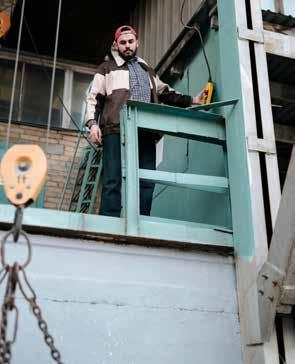
concentration. When a worker is aware of how catastrophic a single mistake can be and also acknowledges that it is their responsibility, multitasking becomes significantly harder as they have to interpret several data points while keeping everyone’s safety in mind and their mental fatigue exceeds their mental capacity resulting in cognitive overload. Cognitive overload leads to slower reaction time, decision errors, brain-freeze moments and near misses resulting in potential calamities. Introduction of complex technologies to their work routine without adequate support will only worsen the situation.


Strategies to manage human factors and cognitive overload
It is key to manage the workload as well as sensory overload of the workers for everyone’s safety and the unit’s efficiency. The main measures which can be taken are:
• Shift schedule management: Use rotational schedules, mandatory rest periods, and wearable tech to monitor alertness. Avoid monotonous routines to maintain mental fitness.
• Communication protocols: In busy workplaces, ensure simple and clear communication through standardised hand signals, digital tools, and teamwork drills to minimise fatigue from miscommunication.
• Ergonomic design and HMI improvements: Improve workplace conditions with better cabin layouts, intuitive controls, and anti-vibration seats to reduce physical strain. Simplify machine interfaces using colour-coded alerts and AI assistance to ease cognitive load.
• Training and simulations: Conduct regular VR/AR-based training sessions to strengthen situational awareness and decision-making under pressure, ensuring safer and more efficient crane operations.
Crane operations have a significant impact on supply chains, with efficient and well-maintained cranes improving logistics and productivity, while breakdowns can cause major disruptions, delays, and financial losses. Improvements in human performance by reducing their cognitive overload will have a positive impact on supply chain outcomes i.e. fewer accidents, reduced downtime, and higher throughput. Investing in human-centred designs improves efficiency, reliability and resilience in logistical operations. As automation increases, human factors must be a design priority, not an afterthought.
Blue Yonder rethinks MENAT’s returns management dilemma
Returns are now a normal part of the buying journey. Yet, each return adds cost, complexity, and carbon emissions for logistics providers and retailers alike; while they are under pressure to protect margins, meet service levels, and operate more sustainably.
Amid this dilemma, Blue Yonder, the AI company for supply chain and a global leader in end-to-end digital supply chain transformation, alleviates these industry pain points. With a unified, AI-driven platform and multi-tier network, the company powers 3,000+ retailers, manufacturers, and logistics service providers to operate sustainably and scale profitably.
We sat down with Yahyah Pandor, VP & GM, MENAT – Blue Yonder, who unpacked some of the untapped regional opportunities in returns management and retail logistics.
AM: Over the next 3–5 years, how will returns management evolve in the MENAT region, especially with the rise of omnichannel retail?
YP: If you looked at returns data from my own household, you’d probably conclude returns are already a way of life here. That’s actually a good reflection of MENAT. We have a very generous returns culture, especially in fashion, beauty and perfumery. In the UAE, a significant share of online orders in those categories comes back, and retailers have become excellent at the front end – fast delivery, easy pickup, quick refunds. The strain is at the back end, as returns carry costs in transport, handling, storage, markdowns and lost selling time.
Our Global Consumer Retail Returns Survey shows you can’t fix this with harsher policies: 84% of consumers say they will stop shopping with their favorite retailer if returns policies tighten, and two-thirds are already reluctant to buy because of stricter rules. Today, many of these challenges are hidden because e-commerce, stores,
transport and warehousing run on separate systems that don’t talk to each other. With integrated platforms and end-to-end visibility, returns stop being an afterthought and become part of how you plan inventory, cash and loyalty.
AM: What roles do AI and predictive analytics play in transforming returns from a cost center into a strategic advantage?
YP: AI is what turns returns from a headache into a design opportunity. It sees patterns no human planner can track at scale: products with high return rates by size or color, neighborhoods where returns spike, or loyal customers who struggle with sizing. Retailers can then move away from “one-policy-for-everyone” approaches and consider rewarding low-return customers with generous terms while giving frequent returners tighter – even paid – options that convenience still makes acceptable.
Our returns management capabilities, strengthened by the acquisition of Optoro, use AI and predictive analytics from the moment a return is initiated . It ultimately decides the smartest path for every return, including when not to send it back, enabling retailers to turn returns into margin and loyalty versus cost.
AM: Are retailers in MENAT approaching returns differently than their global counterparts? What cultural or logistical factors influence this?
YP: Culturally, MENAT is very serviceoriented. Consumers are used to “tap to order, tap to return” experiences. It’s normal to order multiple sizes, try things
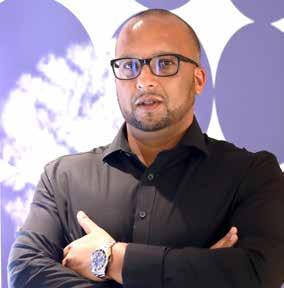
at home, and send back what doesn’t work. As I mentioned earlier, our data shows that stricter policies will only deter consumers from exercising their purchasing power, meaning this convenience is not optional – it’s part of the value proposition . Logistically, though, MENAT is complex. In the UAE, you’re dealing with dense urban areas and heavy traffic; in Saudi Arabia, you’re dealing with significant distances between cities. Every return involves a vehicle, a driver, a route and a decision about which facility – Jebel Ali, Sharjah, Riyadh and so on. Multiply that by thousands of parcels and you have a serious optimization problem.
Leading MENAT retailers are keeping returns convenient while tightening the economics behind them, aligning policies with real cost-to-serve by region and segment, and using transportation and warehouse management platforms to orchestrate those flows rather than relying on manual judgment. That’s where integrated solutions like ours help bridge gaps between cultural expectations and operational reality.
AM: What innovations in reverse logistics are you most excited about, and how close are we to seeing them widely adopted?
YP: AI-driven decisioning, dedicated returns infrastructure and early pilots with autonomous vehicles and drones are reshaping reverse logistics – setting us up for a future where returns are faster, more automated and fully

integrated with forward logistics, even if we’re not at mass adoption yet.
AM: What’s the first step for retailers who want to make returns more sustainable?
YP: You can’t manage what you can’t measure. To avoid pursuing sustainability in the dark, retailers need a solid transportation and warehouse management foundation, one that allows them to optimize routes and cut empty miles. Our acquisition of Pledge enables retailers to access accredited emissions reporting aligned with global frameworks . With that visibility, they can redesign their returns network; steering volume to lower-emission options and avoiding unnecessary cross-border moves.
AM: And how can they do that without hurting the customer experience?
YP: Our sustainability survey shows most consumers say environmental considerations matter in their purchase decisions, and many are willing to pay more for greener everyday products, including beauty and clothing . That gives retailers room to design attractive, lowercarbon return options, such as incentivized drop-off points or slower consolidated pickups that reduce empty miles. The secret is to keep the front-end experience simple and convenient, while using technology to run much smarter, more sustainable logistics behind the scenes.
AM: How do you see the role of supply chain leaders evolving as returns become more central to profitability and customer loyalty?
YP: So much disruption demands a new approach to returns, pushing supply chain leaders into a more strategic role, where customer experience and profitability are always top of mind. When doubledigit percentages of sales can come back, and a poor returns experience can lose a customer for good, returns simply aren’t a back-office issue anymore. How you manage them can make or break profitability and customer loyalty.


Arvato becomes Montblanc’s new logistics partner for global fulfilment operations
• Arvato supports Montblanc with high-quality, secure, and fully integrated omnichannel logistics
• Fast, precise, and value-added fulfilment services ensure a premium customer experience
• Global fulfilment for B2B and B2C from Arvato’s site in Düren (Germany)

Montblanc, one of the world’s most renowned luxury brands, has chosen Arvato as its new logistics partner for global fulfilment operations. The collaboration marks another milestone in Arvato’s growing portfolio of global brand clients and underscores the company’s capability to deliver excellence in quality, speed, and customer experience.
Arvato’s site in Düren (Germany) will manage Montblanc’s warehousing and fulfilment operations, serving as a centralised hub for global distribution. From there, shipments to more than 60 countries will be managed via road and airfreight.
With same-day shipping capabilities and close proximity to major airports, Arvato ensures fast and reliable delivery that meets the high expectations of Montblanc’s discerning customers. The logistics concept combines a one-stock omnichannel setup for B2B and B2C with advanced automation, paperless workflows, and real-time visibility across all channels.
By combining deep industry expertise with the right technologies, Arvato develops
innovative supply chain management and e-commerce solutions for its clients.
Arvato focuses on consumer products, tech, healthcare, automotive and publisher industries and has aligned its organisation to meet the needs of its global clients and their industries. More than 18,000 employees work at 100 locations with state-of-the-art cloud technologies.
By integrating these systems, Arvato achieves exceptional stock accuracy and efficiency – key pillars for maintaining Montblanc’s premium service standards worldwide. To further enhance the brand experience, Arvato provides value-added services (VAS), performed by a specially trained team, ensuring that each item is handled with the utmost care and precision to meet Montblanc’s standards of craftsmanship and excellence.
“We are very proud to start the partnership with Montblanc combining operational excellence and precision with a clear focus on the best customer experience along the entire shopping process,” said Julia Börs, Member of the Board at Arvato. “Luxury brands expect perfection at every
step of the Press Release process and we have designed a solution and built a team to ensure precisely these requirements are also met in the supply chain.” Following the already successful go-live of B2C operations, the B2B integration is set for July 2026, completing a fully harmonized logistics setup for Montblanc’s global business. The partnership is based on a strong cultural fit, close collaboration, and a shared commitment to delivering exceptional customer experiences.
“Montblanc is proud to partner with Arvato to strengthen its delivery of seamless, high-quality experiences to customers at every single touchpoint. Finding the right logistics solution is important to elevating our client centric approach, ensuring continued excellence in execution from reliability to flexibility, from speed to delivery,” says Sebastien Vinet, International Supply Chain Director at Montblanc.
Arvato is an innovative and leading global 3PL service provider in the field of supply chain management and e-commerce.
Launching the collaboration (from left to right): Gerald Hofer (CEO KNAPP), Giorgio Sarné (CEO Montblanc), Frank Schirrmeister (CEO Arvato), Marie-Theres Mangelsdorf (Chief Client & Digital Officer Montblanc), Sébastien Vinet (Montblanc), Julia Börs (Member of the Arvato Board), Philippe Fortunato (CEO Richemont)
SILZ Company showcases integrated logistics opportunities at Lisbon’s Web Summit

The Special Integrated Logistics Zone Company (SILZ) participated at the recently concluded Web Summit Lisbon 2025, as part of the Invest Saudi delegation, spotlighting the Kingdom’s USD $76 billion digital economy.
As a world-class destination for investment across technology, artificial intelligence, e-commerce, and integrated logistics, Saudi Arabia is rapidly advancing its position as a digital and logistical powerhouse. With more than USD $14.9 billion in technology investments , 1,300 megawatts of data centre capacity , and 20 subsea cables connecting East and West , the Kingdom is laying the infrastructure to support high-growth sectors and enable the emergence of over 300 start-ups.
Amid this transformative landscape, SILZ Company stands as a critical enabler, accelerating trade and digital commerce
through next-generation integrated logistics infrastructure. Established in 2022, SILZ Company is the award-winning developer and operator of specialized logistics zones in the Kingdom. Named Logistics Hub of the Year, the company connects global markets through innovation, smart infrastructure, and operational excellence, supporting the creation of over 60,000 jobs in the process.
At the heart of SILZ Company’s mission is Riyadh Integrated, the Kingdom’s first Special Integrated Logistics Zone. This flagship development spans 3 million square meters and offers a suite of globally competitive benefits from 100% foreign ownership, 50-year tax relief, and direct access to King Khalid International Airport. These advantages position Riyadh Integrated as a vital node in Saudi Arabia’s integrated logistics and e-commerce value chain.
Phase 1 of the zone is already 55% occupied, attracting major players across ICT, pharmaceuticals, consumer commerce, and aerospace sectors. Among the landmark developments are a 200,000 square meters Lenovo manufacturing facility and a 40,000 square meters Chalhoub Group logistics hub. Additional high-profile investors include Unipart Logistics, Bahri Logistics, CJ Logistics, Sapphire, iHerb and SHEIN; underscoring the zone’s global appeal and operational readiness.
The Special Integrated Logistics Zone Company (SILZ) is the developer and operator of the first Special Integrated Logistics Zone in Saudi Arabia. Leveraging advanced technology and deep industry expertise, the company provides comprehensive and innovative logistics solutions.


Global Airports Forum (GAF) focuses on innovation and launch of new Hub
Saudia, Amadeus, and SolitAir are among new exhibitors Travel experiences set to become more seamless technology is redefining airport operations. High priority for enhanced passenger safety touchless technology making journeys enjoyable.

The 4th edition of Global Airports Forum (GAF), to be held at the Riyadh International Convention and Exhibition Centre (RICEC) from December 16 to 17, will see over 50 new exhibitors including flag-carrier Saudia and global travel technology giant Amadeus, along with Airport Innovation Trail and Airport Innovation Hub making its debut.
Organised by Niche Ideas, with Matarat Holding, an arm of the General Authority of Civil Aviation (GACA), as its main sponsor, the largest dedicated airport B2B platform in the Kingdom will feature over 250 exhibitors from 100+ countries, along with over 10,000 participants over two days.
An unprecedented 1,000+ buyers will be coming from within the Arabian Peninsula’s largest country Saudi and the wider Middle East region. There will be 5,000+ pre-scheduled meetings during the Forum’s duration. Additionally, over 100 international speakers are attending the


two co-located events: the Global Aviation Issues Conference (GAIC) and the Women in Aviation (WIA) General Assembly.
This edition will see four new features: Future GSE Display, Airport Innovation Hub, Airport Innovation Trail, and the Startups Hub. Additionally, there will be dedicated pavilions by various countries, including Italy, Germany and the United Kingdom, with a special focus on game changing innovations for the airports industry.
Daksha Patel, Event Director at Niche Ideas, remarked: “With most of the world’s leading aviation industry players coming onboard, Global Airports Forum 2025 will be a power-packed edition that will display new technology and discuss issues that are of vital interest to the rapidly expanding industry. It has been our endeavour to bring the best innovations and ideas to the show for our attendees and the number of new launches this year is a testimony to the global industry’s commitment to Saudi Arabia’s vision to transform global air travel.”





The Maritime Standard Awards 2025 winners showcase high levels of operational excellence
The maritime sector’s leading awards event, The Maritime Standard (TMS) Awards 2025, announced this year’s winners from across the Middle East and Indian Subcontinent. The Awards showcased achievement and innovation in 25 categories covering shipping, logistics, ship repair, offshore services, marine technology and related sectors, as well as a series of special awards for individual achievement. The prestigious event took place at Atlantis The Palm, Dubai on October 29th, attracting over 1,000 senior executives, decision-makers and industry leaders, from the region, and across the globe. We bring you all the action.





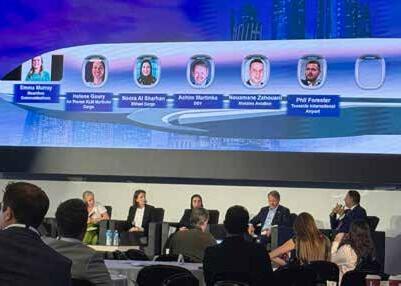
TIACA at Air Cargo Forum 2025 in Abu Dhabi
The recently concluded Air Cargo Forum 2025 held in Abu Dhabi was a resounding success for TIACA (The International Air Cargo Association). Attended in large numbers by air cargo experts and industry analysts, it was held from November 3rd to 6th at the Etihad Arena.
At the event, the organisation announced the official handover of the office of the Chair to Roos Bakker, Manager of Business Development & Contract Management at ICTS Europe. Ms. Bakker succeeds outgoing Chair Steven Polmans, marking the beginning of a new chapter of leadership for the association.
It also announced that the two CoVice Chair positions will be filled by Emir Pineda, Director of Marketing and Air

Service Development at Miami-Dade Aviation Department, and Tushar Jani, Chairman of Cargo Service Center (CSC) Group and SCA Group of Companies.
In other developments TIACA and HAUS61 GmbH signed a Memorandum of Understanding (MoU) to strengthen cooperation and promote innovation, entrepreneurship, and Start-up development within the global air cargo and logistics industry.
This partnership underscores TIACA’s ongoing commitment to fostering innovation and supporting emerging businesses that are reshaping the future of air cargo.
Global Supply Chain was a proud media partner of this international event. We take you behind the scenes.

Designing scalable automation for omnichannel operations
The Middle East is undergoing rapid economic diversification, with Saudi Arabia and the UAE leading the charge. Both nations are investing heavily in manufacturing, tourism, and trade infrastructure, positioning themselves as critical players in global logistics.
By Rami Younes, General Manager, Swisslog Middle East
This shift places greater emphasis on advanced warehousing solutions, particularly as omnichannel commerce becomes the dominant model for modern retail.
Omnichannel operations present opportunities, but they also bring complexity. Retailers must manage unpredictable order volumes, optimise inventory across multiple channels, and reduce operating costs, all while delivering fast and seamless customer experiences. Automation is central to overcoming these challenges, enabling more efficient store replenishment, faster e-commerce fulfilment, and improved cross-channel visibility. According to Think with Google, omnichannel strategies can increase store visits by up to 80%, making it clear that flexible distribution models are a competitive necessity.
Designing the right automation approach
A wide range of automation technologies is available to support omnichannel distribution, including automated storage and retrieval systems (ASRS), mobile robotics, goods-to-person solutions, sortation equipment, and packaging automation. The challenge isn’t in picking tools off the shelf but in putting together a setup that actually works for the facility.
This requires a holistic approach: identifying where automation can deliver the most value today while ensuring the system can scale for tomorrow. Retailers that use this approach to automation are better equipped to adapt as order volumes grow or new sales channels emerge.
The role of software in this design cannot be overstated. Overly rigid or heavily customised systems often add unnecessary cost and limit operational
agility. By contrast, modular, flexible software platforms can synchronise people, robotics, and equipment, enabling seamless integration of processes. This ensures that operations remain adaptable and efficient, regardless of fluctuations in demand.
Unifying e-commerce and retail fulfilment
Traditionally, many high-volume retailers managed store replenishment and e-commerce fulfilment through separate distribution networks. While this simplified warehouse design, it often complicated inventory management and increased costs. In the Middle East, where e-commerce sales are projected to reach AED 212.2 billion by 2029, this separation is becoming unsustainable.
An integrated strategy, where both functions are managed within the same facility, simplifies inventory management and provides greater flexibility. It enables shorter cycle times, supports late-stage allocation of inventory, and reduces the need for additional warehouse space compared to running separate facilities. For retailers competing in an increasingly digital-first market, this model delivers both operational efficiency and cost advantages.
The role of shuttle systems
Light-goods shuttle systems are particularly well-suited to high-volume omnichannel warehouses. They combine throughput, speed, and flexibility, handling cartons, totes, and bins of different sizes within the same system. By unifying inventory for both retail and e-commerce, shuttle systems improve storage efficiency and material flow, while providing visibility across all operations.
These systems also adapt easily to different processes. Workstations can be configured for cluster picking in

e-commerce, for replenishment tasks, or for preparing sequenced cartons for palletisation. When integrated with software platforms such as Swisslog’s SynQ, shuttle systems orchestrate everything from picking and sortation to labelling and packing, ensuring operations remain efficient and scalable even during demand surges.
Delivering on the omnichannel promise
The strategic deployment of warehouse automation and intelligent software, combined with the expertise of an experienced logistics partner, enables retailers to deliver on the promise of omnichannel distribution. Automation not only enhances speed and efficiency but also provides the adaptability required to manage fluctuating demand and long-term growth. It strengthens visibility, optimises resource use, and improves customer satisfaction. By embracing a holistic design approach, businesses can build omnichannel warehouses that are not only efficient today but also resilient and future-ready.
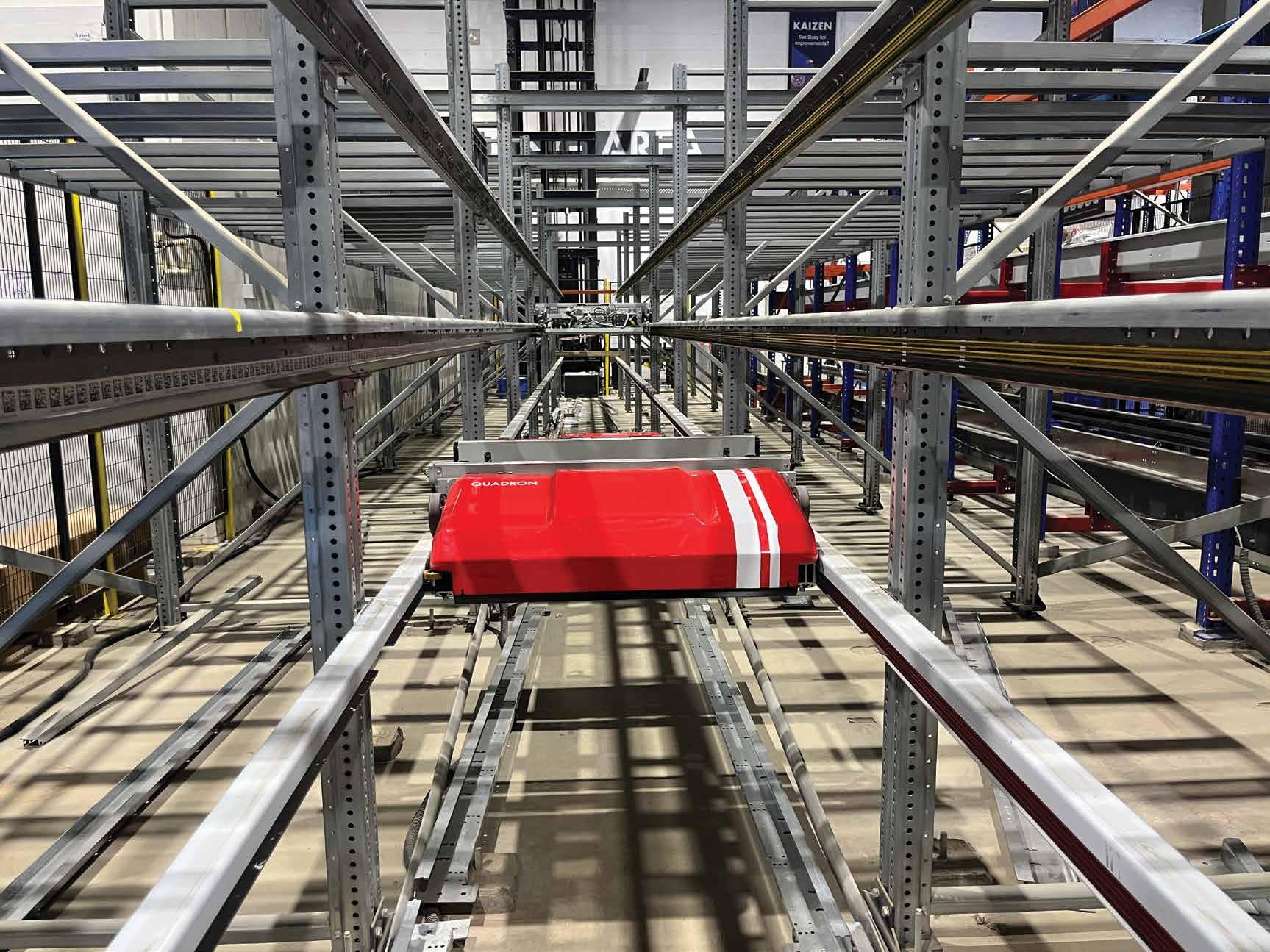


The API highway: Torry Harris fuels the logistics revolution
Torry Harris Integration Solutions (THIS) is a global digital transformation and IT services firm with 25 years of experience in digital ecosystem enablement, API management, Cloud, and Data solutions. Headquartered in New Jersey, with offices in Dubai and Riyadh, it partners with enterprises across telecom, logistics, finance, healthcare, and government sectors to build AI-driven digital ecosystems. Shivdayal Charan, Director, Middle East, Torry Harris Integration Solutions tells us more about the company.
Global Supply Chain: Why is integration critical for modern logistics and supply chains?
Shivdayal Charan: Integration today is a strategic requirement in today’s rapidly growing Middle East logistics sector, where disconnected systems can undermine efficiency at every level. This sector, valued at over USD 300 billion in 2025 and projected to reach USD 400 billion by 2030, relies on coordination, exchange of information seamlessly across multiple stakeholders - from pickup and warehousing to customs, cold-chain, and last-mile delivery. Any break in that
chain leads to delays, errors, and loss of visibility.
Consider cold-chain logistics. Temperature-sensitive goods must reach specific storage points within tight timelines. A well-integrated system can automatically detect the nearest available cold-storage unit or reassign delivery when a vehicle breaks down. Integration ensures that all participants operate within the same flow of data, improving reliability and transparency. Simply put, integration aligns processes, partners, and performance - the foundation for faster, safer, and more predictable supply chains.

GSC: Many companies struggle with disconnected logistics systems. From your perspective, what are the hidden operational and financial costs or challenges that arise from a lack of integration in supply chains?
SC: The most immediate impact is operational inefficiency. Disconnected systems force teams to manage multiple dashboards, duplicate entries, and manual reconciliations. This increases cycle times, reduces accuracy, and diverts attention from higher-value activities.
In financial terms, fragmented systems lead to higher operating and inventory costs. Poor visibility across the chain results in inaccurate forecasting, delayed shipments, and excess inventory. Each of these has a direct effect on working capital and service levels.
There is also a customer experience cost. Late deliveries, damaged goods, or tracking gaps weaken both the logistics provider’s and the retailer’s reputation. In today’s market, the service experience is as important as the product itself.
An integrated environment addresses these issues by providing a single view of operations. Data consolidation enables faster analysis, clearer prioritization, and better decisions. Integration, therefore, should be seen as an investment in accuracy, responsiveness, and brand trustnot an overhead.
GSC: Considering all these challenges, what solutions does Torry Harris offer to help companies streamline their operations in this sector?
SC: At Torry Harris, we focus on enabling logistics companies to operate as connected, data-driven ecosystems. Our integration frameworks and SMART Souq digital platform bring together modernization, automation, and intelligence within one operating model.
SMART Souq is an AI-enabled ecosystem platform that combines advanced integration, analytics, and automation to improve visibility across the supply chain. It helps logistics firms optimize routes, manage partner collaboration, and monetize their data through API-driven marketplaces.
The platform’s low-code design allows business teams to configure processes and onboarding flows without extensive technical intervention, speeding up deployment and reducing cost. It also supports hybrid business models - from B2B logistics exchanges to SME fulfilment networks - giving enterprises the flexibility to expand and scale.
In the Middle East, where logistics networks are expanding across multimodal corridors and cross-border operations, integration-led modernization is becoming a competitive differentiator. Our role is to help enterprises build that foundation - ensuring that every digital investment contributes to speed, reliability, and measurable outcomes.
GSC: Low-code and no-code tools are gaining popularity for faster solution deployment. Why is it needed today and how does it help individuals and companies?
SC: The logistics industry operates in an environment of constant changefluctuating demand, evolving customer expectations, and new delivery models. Traditional IT development cycles are often too slow and expensive to keep pace. Lowcode and no-code platforms address this by enabling faster solution deployment, shorter release cycles, quicker innovation, and lower cost of adaptation.
At Torry Harris, we incorporate low-code capabilities within our integration and ecosystem frameworks. These tools allow logistics providers to build APIs, automate tasks, and integrate new partners rapidlywithout long development timelines.
In practice, this means a logistics firm can launch a new service or update a process within days instead of months, maintaining both agility and control. As supply chains become more digital and distributed, speed of implementation will determine who leads and who follows.
Shivdayal Charan, Director, Middle East, Torry Harris Integration Solutions
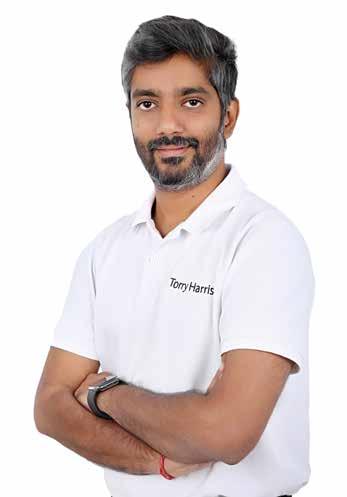
How AI and Automation orchestrate the peak-season supply chain
Zhang Qiang, Senior Solutions Director of Logistics Technology, Cainiao Group
Modern e-commerce — supercharged by marketplaces, livestreaming and direct-ship models — produces small, frequent, diverse and unpredict replenished more often to cushion hour-byhour order surges on 11.11 and Cyber Week.
1. More stable and cost-aware – control towers need real-time visibility plus tools to trade off cost versus service as flashsale quotas open and close.
2. Two-way as standard – return rates climb after mega-promotions, making closed-loop recovery as critical as outbound speed.
3. Multi-objective optimisation – every decision must juggle SLAs, cost, carbon and resilience, varying by route and promotion tier.
4. “Promo-ready” resilience – networks must flex instantly when livestream offers go viral or weather disrupts a key lane.
AI and automation: practical enablers for 11.11 to Cyber Monday
Machine-learning models fuse traffic, weather, port congestion and demand signals to reroute shipments and reallocate capacity in real time — reserving air for time-critical flash-sale parcels while batching bulk flows on optimised seaplus-land lanes to moderate cost and emissions. Multilingual NLP chatbots clear routine consumer queries around the clock, freeing agents for the complex exceptions that spike after major promotions. Train generative models on structured and unstructured supply-chain data and decision rules, and you gain engines that support forecasting, network design and contingency playbooks — exactly the fast, informed trade-offs November’s uncertainty demands.
Cainiao’s three-pillar approach in action
• Digital – cloud-native OMS, WMS and TMS unify orchestration and end-to-end data, giving Singles’ Day control rooms a single version of truth.

• Intelligent – large-model capabilities drive demand forecasting, inventory planning, smart replenishment, order allocation, packing and routing, automatically recalibrating as Black Friday carts build.
• Automated – AS/RS, four-way shuttles, AMR/AGV fleets and high-speed sorters, all synchronised by a common scheduling platform, deliver consistent throughput even when order volumes multiply overnight. Winning firms treat supply chain as a systems problem: tidy the data, deploy models that understand trade-offs, and automate routine choices while keeping humans in the loop for exceptions. Invest in real-time visibility, smarter returns flows and clear sustainability metrics. The payoff is clear: faster, cost-efficient, lowercarbon fulfilment and delivery with higher customer satisfaction and better inventory turns — advantages proven every year when Singles’ Day rolls seamlessly into Black Friday and beyond.

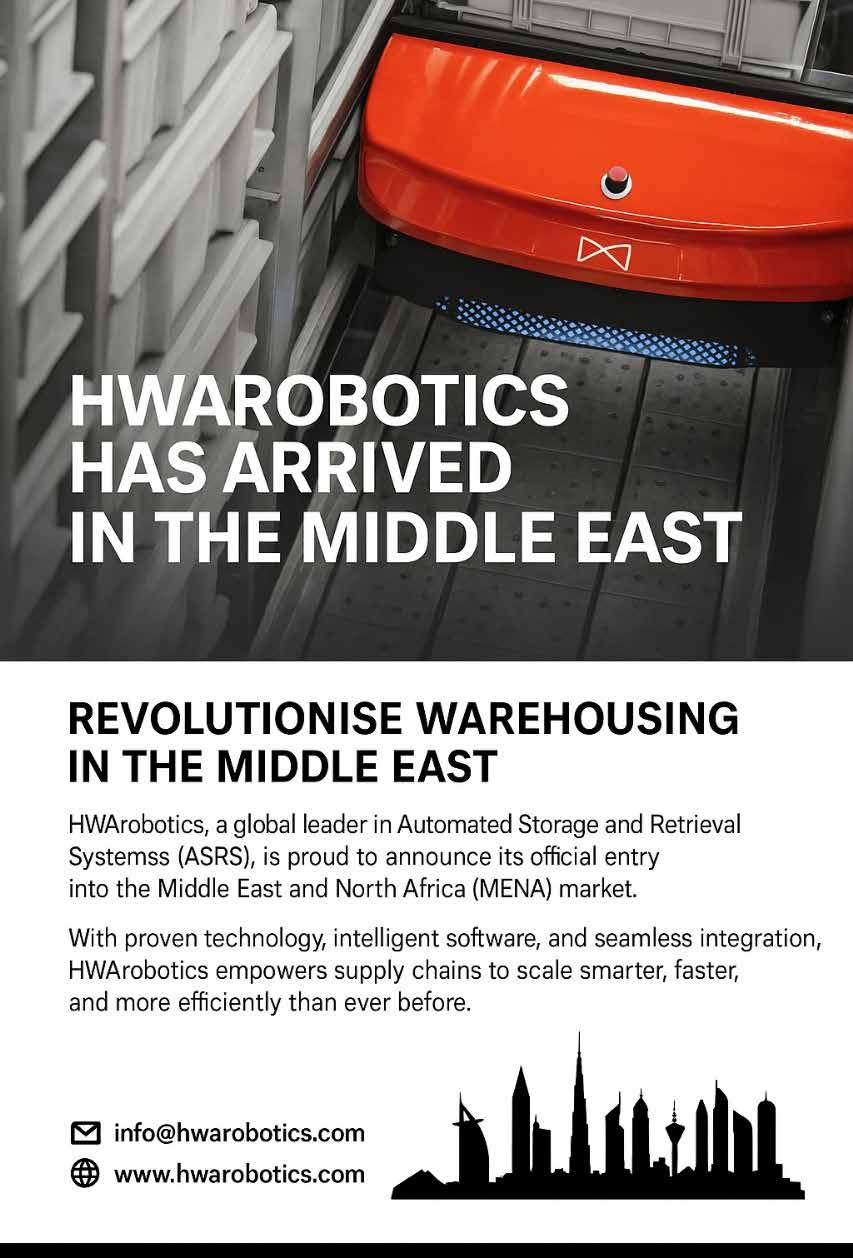
Clearing the fog on ESG implementation for SMEs
Targeted ESG Implementation: empowering SMEs in the GCC
In the Gulf Cooperation Council (GCC) region, comprising Bahrain, Kuwait, Oman, Qatar, Saudi Arabia, and the United Arab Emirates (UAE), small and medium-sized enterprises (SMEs) constitute over 95% of registered businesses and contribute substantially to employment and non-oil GDP, with the UAE alone hosting approximately 400,000 SMEs driving 60% of non-oil economic activity.
As regulatory frameworks intensify, exemplified by the UAE’s Federal Decree-Law No. 11 of 2024 and Saudi Arabia’s Vision 2030 sustainability mandates, SMEs encounter increasing imperatives to adopt Environmental, Social, and Governance (ESG) practices.
Blanket ESG implementation, however, poses risks of resource depletion and diminished returns for these constrained entities. Instead, a targeted methodology, informed by core drivers such as customer requirements and regulatory demands, allows SMEs to realise tangible benefits, including improved supply chain access, operational efficiencies, and enhanced financing opportunities.
The imperative for targeted ESG: Key drivers in the GCC
ESG adoption among GCC SMEs is primarily motivated by regulatory demands and customer requirements. The UAE’s Federal Decree-Law No. 11 of 2024, effective May 30, 2025, obligates entities emitting
over 500,000 tonnes of GHGs annually to measure, report, and reduce emissions by 47% by 2035, with fines ranging from AED 50,000 to AED 2,000,000.
This extends indirectly to SMEs through value chain obligations, as larger entities cascade compliance expectations. In Saudi Arabia, the Vision 2030 Sustainability Pillar mandates ESG-aligned reporting for publiclisted firms, influencing SME suppliers, while Oman’s Muscat Stock Exchange requires mandatory sustainability reporting for listed companies starting in 2025. Qatar’s Stock Exchange ESG guidelines, introduced in 2022, further emphasise disclosures for export-oriented SMEs.
Customer requirements amplify ESG momentum
A 2024 regional survey reveals that 75% of GCC procurement leaders favour ESGcompliant suppliers, with SMEs citing client mandates, particularly from multinational corporations adhering to EU ETS or IMO MEPC GFI, as the primary catalyst. In the
UAE, 65% of consumers prefer companies demonstrating strong ESG values, while 79% in Saudi Arabia are willing to pay a premium for compliant products.
Recent research from NYU (New York University) Stern’s Centre for Sustainable Business, in collaboration with seven major U.S. brands, underscores the value of social ESG messaging; incorporating social claims increased product appeal from 42% (core attributes alone) to 62% (with one social claim) to 70% (with additional claims).
Targeted ESG implementation enables SMEs to secure contracts
As an example, UAE-based logistics SMEs adopting low-carbon practices report 15 to 20% cost savings in fuel and compliance. Financial incentives follow, as ESG-focused SMEs access preferential loans from institutions like the Dubai SME Green Fund or Bahrain’s Central Bank initiatives targeting 20% of bank portfolios for SMEs by 2025.
The following bar chart, adapted from a 2023 Kroll study (2014 to 2020), illustrates the performance premium for ESG leaders, relevant to GCC SMEs through targeted adoption:
ESG leaders achieve a 50% relative premium, with McKinsey’s 2023 analysis of 10,000 firms showing “triple outperformers” delivering 2 percentage points higher annual excess Total Shareholder Return (TSR).
Prioritising through double materiality and GRI “Qualified Lego Blocks”
Central to targeted ESG implementation is the double materiality study, assessing topics material to both financial performance and external impacts. This process, aligned with GRI Standards,
involves stakeholder consultations to pinpoint priorities, such as GHG emissions for UAE logistics SMEs or labor practices in Saudi manufacturing. A 2025 regional review indicates that materiality-focused approaches reduce reporting burdens by 25 to 35% for SMEs, harmonising with GCC’s unified ESG metrics introduced in 2023.
GRI’s modular standards, akin to “qualified Lego blocks,” permit SMEs to select specific disclosures (e.g., GRI 305 for emissions, GRI 401 for employment) and integrate them seamlessly, ensuring relevance without overload.
This aligns with UAE MOCCAE guidelines and supports compliance with DecreeLaw No. 11, yielding credible reports that elevate valuation multiples by up to 1.8x for a 10-point ESG improvement, per Deloitte data.
Building capacity: Education, NGO partnerships, and ownership SMEs must invest in education Utilising resources like MOCCAE training modules or ESGPlus workshops on resilience and sustainability provide checklists for short-term (e.g., GHG reporting), medium-term (e.g., KYC implementation), and long-term actions (e.g., renewable adoption). Workforce upskilling fosters internal expertise, with NYU Stern’s 2022 meta-analysis linking trained teams to 58% positive financial outcomes.
Partnerships with NGOs are invaluable Organisations such as the Emirates Environmental Group, Goumbook, ESGPlus, WWF MENA, or the Saudi Green Initiative offer specialised knowledge in ESG audits, green tech, and SDG mapping, often at

Supply Chain Resillience: Targeted ESG vs. Peers in MENA (2016–2022)
low cost. These collaborations address data inconsistencies (cited by 30% of managers) and enable authentic progress tracking, supporting initiatives like the Middle East Green Initiative.
ESG program ownership is paramount SMEs should “learn to fish” by internalising processes rather than purchasing offthe-shelf solutions. This mitigates risks like greenwashing, as outlined in COP27 reports and MOCCAE/SCA rules, and builds resilience against rating divergences.
Resilience in Supply Chains: ESG as a Strategic Enabler
Targeted ESG bolsters GCC SME supply chains against sanctions, trade disruptions, and climate risks. Robust KYC, using AI or blockchain per FATF and UAE Central Bank standards, ensures compliance amid global tariffs. Alignment with IMO MEPC GFI base targets (the resolution on which got delayed
in the September MEPC session due to geopolitics) and UAE’s ETS pilot optimises maritime operations. McKinsey data shows ESG-integrated chains reduce disruptions by 20 to 30%, with over 50% of outperformers achieving >10% revenue growth.
This line chart, adapted from McKinsey (2016 to 2022), depicts excess TSR for targeted ESG adopters in volatile GCC contexts:
A pathway to sustainable prosperity
For GCC SMEs, particularly in the UAE and Saudi Arabia, targeted ESG, grounded in double materiality, GRI modularity, education, NGO partnerships, and program ownership, converts regulatory and customer drivers into enduring advantages. By focusing on material issues and building internal capabilities, SMEs align with Net Zero 2050 ambitions, enhance resilience, and secure competitive positioning in regional and global markets.
Captain Anuj Chopra stands as a beacon of thoughtful leadership in the maritime world, drawing on more than four decades of hands-on experience to nurture resilient, peoplecentred supply chains that truly honour our planet’s fragile balance.
As co-founder of ESGPlus LLC in Texas and MaritimESG Middle East Projects Management LLC in Abu Dhabi, he guides clients toward sustainable practices that weave environmental stewardship, social equity, and strong governance into every operation; from optimising global food aid logistics to pioneering integrated pest management and charterparty strategies that cut emissions and boost efficiency.
Among many accolades is his mentorship as an adjunct professor at the University of Houston, co-author of influential works on bridge watchkeeping and U.S. maritime strategy, and his dedicated service on boards like NAMEPA and NOAA, where he assesses ESG passports and leads workshops to empower the next generation.
”SAL” announces first international expansion through strategic partnership with “TAM Group”
n SAL Logistics Services, the national leader in cargo handling, logistics solutions, and supply chain management in Saudi Arabia, has signed a strategic partnership agreement with TAM Group to strengthen air cargo operations between China and the Kingdom.
The signing took place on the sidelines of the Transport Logistic Southeast Asia Exhibition in Singapore one of the world’s leading events in the transport and logistics sector and was attended by top industry leaders from around the globe.
This partnership marks SAL’s first international expansion, entering the Chinese market through TAM Group a key milestone in expanding into one of the world’s largest and most dynamic logistics markets. Both parties will combine their expertise to enhance the trade corridor between China and Saudi Arabia, addressing the growing demand across multiple sectors, particularly e-commerce, while developing innovative freight solutions that boost operational
efficiency and open new horizons for global trade growth.
China serves as a major hub for global trade and a central link in international supply chains. This partnership represents a strategic step toward strengthening supply chain integration and reinforcing the Kingdom’s position as a global logistics hub, in line with the National Transport and Logistics Strategy and Saudi Vision 2030.
Mr. Omar Hariri, CEO of SAL Logistics Services, stated: “As part of SAL’s expansion strategy, we are proud to announce the company’s first international presence in China the world’s largest export market — through our partnership with TAM Group. This collaboration will enable Chinese companies to expand into Saudi Arabia and leverage the Kingdom’s strategic geographic location as a global distribution hub powered by SAL’s integrated logistics solutions. This expansion is a pivotal step toward enhancing trade connectivity between the two nations
UAE procurement leaders signal shift to responsible sourcing as strategic priority
n CPO Roundtable hosted by CIPS MENA in partnership with EcoVadis highlights regulation, CFO buy-in and supplier engagement as key drivers
Procurement leaders across the UAE are signalling a decisive shift from traditional green procurement to comprehensive responsible sourcing, driven by new regulations, CFO buy-in, and supplier engagement. This was the central theme at an exclusive Chief Procurement Officer (CPO) Roundtable hosted by Chartered Institute of Procurement and Supply (CIPS), in partnership with EcoVadis, in Dubai.
Senior procurement executives from leading organisations explored how the UAE is setting a regional benchmark by integrating sustainability into the very core of procurement strategy. With regulatory developments such as the UAE Federal Decree Law acting as a catalyst, the conversation underscored how procurement is now a powerful lever for driving sustainable impact, supplier
transformation, and strategic value creation.
Participants highlighted the need to engage and educate suppliers, including those early in their sustainability journey, to ensure long-term progress. Collaboration, trust and clear communication of business value emerged as critical factors in accelerating responsible sourcing adoption. Internal capacity building was also identified as key to supporting this transition and strengthening talent attraction and retention.
Salem Bafaraj from Abu Dhabi National Oil Company (ADNOC) noted the potential to link responsible sourcing initiatives to the In-Country Value (ICV) programme. Other

and supporting the continuous growth of e-commerce and global trade flows.”
Mr. Alvin Tam, Senior Vice President, Commercial of TAM Group, said: “We are proud to collaborate with SAL, a leading name in logistics services in the Kingdom. This agreement will allow us to combine our international expertise with SAL’s advanced operational capabilities to develop air cargo networks and expand connectivity between Saudi Arabia and global markets.”
This partnership reflects SAL’s commitment to building strategic international alliances that strengthen its global presence, enhance the Kingdom’s air cargo sector, and consolidate its position as a key global logistics hub.
participants pointed to growing CFO interest in placing a premium on sustainable solutions, and the opportunity to connect sustainability performance to more favourable financing terms, an opportunity often underutilised by procurement teams today.
Natasha Schulz of Dubai Holding and Sofiya Poland of ALEC contributed powerful insights, emphasising the immense opportunity for the region to set a global benchmark for responsible sourcing.
The session concluded on an optimistic note, highlighting the importance of celebrating both small wins and large achievements in sustainability to build momentum and inspire broader action across industries.

Forklifts: The backbone of Middle Eastern industry
n In the bustling economies of the Middle East, forklifts have become indispensable tools for modern commerce. From the mega-warehouses of Dubai to the oil and gas hubs of Saudi Arabia, these machines are the unsung heroes of supply chains. They lift, move, and stack goods with precision, enabling industries to keep pace with rapid growth in trade, construction, and e-commerce.
The Middle East forklift market was valued at USD 1.18 billion in 2024, and projections suggest it will expand at a compound annual growth rate (CAGR) of 7.7% between 2024 and 2031. This growth is fuelled by infrastructure development, booming retail, and the rise of online shopping. In fact, e-commerce alone is expected to be one of the fastestgrowing sectors driving forklift demand.
Powering ahead
Forklifts in the Middle East are diverse, catering to different industries and applications.
Fuel Types: Diesel remains dominant due to heavy-duty applications, but batteryelectric forklifts are gaining traction as sustainability becomes a regional priority.
Classes: Narrow aisle forklifts (Class II) are increasingly popular in warehouses, while counterbalance forklifts (Class IV & V) remain staples in manufacturing and logistics.

Applications: The largest demand comes from freight and logistics, followed by manufacturing and warehousing.
Interestingly, electric forklifts are expected to see double-digit growth rates in the coming decade, aligning with the Gulf states’ push toward renewable energy and reduced carbon footprints
According to Cognitive Market Research, the global forklift market size was estimated at USD 59152.2 Million out of which Middle East and Africa held the major market of around 2% of the global revenue with a market size of USD 1183.04 million in 2024 and will grow at a compound annual growth rate (CAGR) of 7.7% from 2024 to 2031. By 2033, the Middle East & Africa warehouse forklift market is expected to grow from $1.2 billion to over $2 billion, underscoring the region’s appetite for advanced material-handling equipment.
Royal Air Maroc Cargo celebrates 35 years of operations at Brussels Airport
n Royal Air Maroc Cargo proudly marks 35 years of uninterrupted service at Brussels Airport, underscoring a long-standing partnership that serves as a pillar of the airline’s European operations and a vital connection between Morocco, Africa, and Europe.
Since the inaugural cargo flight to Brussels in 1990, the carrier has elevated Brussels to one of its most strategic gateways, fueling the development of trade flows across continents. To commemorate this milestone, a reception was held on October 22 at Brussels Airport, bringing together senior executives from Royal Air Maroc Cargo, Brussels Airport Company, Globe Air Cargo GSA, along with representatives from freight forwarders, partner organizations, and the media.
Over the years, Royal Air Maroc Cargo has continuously invested in its Brussels operations, notably doubling its maindeck capacity with the addition of a B767 freighter. The airline now operates three weekly flights between Casablanca (CMN) and Brussels (BRU), transporting

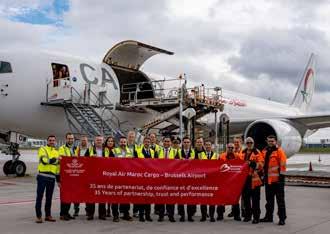
over 4,300 tons of cargo annually and maintaining an average load factor of 85% in 2025. Benefiting from Brussels Airport’s strategic location and strong connectivity within Europe, the station serves as a key consolidation point for cargo flows originating from across the continent. The top three commodities shipped from Brussels, industrial machinery and equipment, automotive spare parts, and pharmaceutical and healthcare products, showcase Belgium’s, and more generally Europe’s industrial strengths and Morocco’s expanding role as a logistics gateway for Africa. In addition to Casablanca, shipments
from Brussels efficiently connect to Dakar, Ouagadougou and Bamako, offering direct access to key African markets.
“35 years at Brussels Airport is a testimony to the trust built with our customers, partners, and the Belgian logistics community,” said Yassine Berrada, Vice-President Cargo at Royal Air Maroc. Looking ahead, Royal Air Maroc Cargo is expanding its European network through increased agility and innovation. The company’s digital partnerships with cargo.one and CargoAi, signed in 2024 and 2025 respectively, are enhancing real-time visibility and streamlining global booking access, available 24/7 for customers worldwide.
WestJet Cargo aids volunteer vet mission in Nunavut
n In late August, WestJet Cargo partnered with the Canadian Animal Assistance Team (CAAT), a national non-profit dedicated to improving animal welfare in underserved communities, to provide logistical support for a recently completed a volunteer veterinary mission in the remote Arctic community of Pangnirtung, Nunavut.
WestJet Cargo worked with CAAT’s volunteer veterinary team to move 12 cases of surgical tools, saline and medical supplies from Vancouver to Ottawa (via Calgary), arriving September 1. Working alongside airline partner Canadian North, WestJet Cargo carefully coordinated the 191 kg shipment to ensure a seamless transfer for the final leg to Pangnirtung.
CAAT’s “MASH-style” (mobile army surgical hospital) clinics bring fully equipped, temporary veterinary hospitals directly into communities where access to veterinary services is limited or unavailable. Beyond treatment, CAAT works hand-in-hand with local leaders to create Community Animal Care Plans, long-term strategies that promote sustainable animal health and welfare.
“Every community deserves access to basic veterinary care — no matter how remote,” said Taylor Nadeau, Cargo Sales Representative at WestJet Cargo. “These animals are family, workers and part of the community. We were honoured to assist CAAT by transporting the specialized equipment that makes their work possible.”


Transporting critical medical supplies to remote regions demands precision, coordination and care — qualities that align closely with WestJet Cargo’s approach.
“CAAT’s volunteer teams have tight schedules, with flights and accommodations arranged around community needs,” added Nadeau. “Any delay in the cargo’s arrival could impact the entire mission. We worked closely with Chris from CAAT to prioritize and monitor the shipment at every stage, ensuring it arrived exactly when needed.”
16 - 17 December 2025
RICEC, Riyadh, Saudi Arabia

BE PART OF THE FUTURE OF AIRPORTS AT GLOBAL AIRPORTS FORUM 2025
10,000+ Global Attendees
5,000+ Pre-scheduled Meetings 300+ International Exhibitors 100+ Participating Countries
SAUDI ARABIA IS INVESTING US$147B TO REDEFINE GLOBAL AVIATION AND YOU ARE INVITED! Innovation thrives. Industry leaders connect. Deals are made.
1,000+ Saudi & Middle East Buyers
300+ International Speakers
PREMIUM SPACES ARE SELLING FAST! BOOK YOUR STAND NOW!
Daksha Patel +971 56 690 7668 daksha@nicheideas.net
Arun Veetil +971 52 499 4488 arun@saudiairportexhibition.com






UAE and Oman enhance sustainable logistics in the region

n Boosting regional connectivity and sustainable logistics Noatum Logistics, which is a part of AD Ports Group, and Hafeet Rail, developer of the first crossborder railway network between the UAE and Oman, have signed an agreement to launch a dedicated rail freight service connecting Abu Dhabi and Sohar. The partnership aims to enhance trade, strengthen supply chains, and create a greener, more efficient logistics corridor between the two Gulf neighbours.
Strategic partnership to connect two key hubs
Signed during the Global Rail 2025 exhibition in Abu Dhabi, the agreement establishes a plan for Noatum Logistics to operate a daily rail freight service utilising Hafeet Rail’s upcoming cross-border network. This marks the first direct rail link between Abu Dhabi, UAE, and Sohar, Oman, setting the foundation for a landmark freight corridor in the Gulf region.
Under the proposed arrangement, the service will operate seven container trains per week, each with a capacity of 276 twenty-foot equivalent units (TEUs) — amounting to an annual throughput of about 193,200 TEUs. These trains will handle 20-foot, 40-foot, and 45-foot containers,
ensuring flexible and reliable capacity from the first day of operations.
Samir Chaturvedi, Chief Executive Officer of Noatum Logistics, highlighted the significance of the partnership, saying the rail link “connects two of the region’s most strategic hubs via rail for the first time,” extending the company’s reach and offering customers a “cost-effective, scalable, and sustainable” transport mode.
He added that beyond operational efficiency, the project would reinforce regional supply chains, unlock new business opportunities, and support broader economic integration between the UAE and Oman.
Ahmed Al Musawa Al Hashemi, Chief Executive Officer of Hafeet Rail, described the collaboration as a major milestone in the railway’s development, emphasising that the dedicated service would provide reliable and efficient cross-border container transport. He noted that this initiative will strengthen trade, drive sustainable growth, and position the railway as a key enabler of regional logistics transformation.
With this agreement, Hafeet Rail is poised to become a central pillar of a new logistics ecosystem that reshapes the flow of goods between the two countries, reinforcing its role as a catalyst for regional integration,
sustainable development, and global competitiveness.
A greener alternative
As global supply chains increasingly prioritise sustainability, the new rail freight connection offers a greener and more efficient alternative to road transport. Rail freight provides predictable and costeffective movement of high-volume, containerised, and bulk cargo over medium to long distances.
Compared to traditional trucking, rail consumes less fuel and produces significantly lower carbon emissions per tonne of freight, making it a key contributor to decarbonisation efforts in the logistics sector. The system’s high load capacity and lower fuel intensity help companies meet environmental goals while improving operational performance and cost efficiency.
The upcoming Sohar–Abu Dhabi rail service builds upon Noatum Logistics’ existing rail operations, including its rail shuttle service between Khalifa Port and Fujairah Terminals, which was launched in the third quarter of 2024. This new crossborder link will expand the network’s reach and efficiency, connecting Omani and Emirati markets through a sustainable freight corridor.

The pressure on bus fleets to save fuel, reduce emissions and reduce whole life costs is relentless. So, why delay the benefits of the new Allison T 2100 xFE ™ transmission, with Fuel Sense ® 2.0 software, until your vehicles are replaced? Our xFE upgrade programme is now live, offering fleets a mid-lifecycle switch with proven fuel consumption improvements of 7.13%-16%. To learn more, and join fleets such as First Bus, please contact one of our Allison Authorized channel partners Mitchell Powersystems or Powertrain Products.
















IVECO & SMAG delivers to Ras Al Khaimah PSD
n IVECO in partnership with its official UAE dealer Saeed Mohammed Al Ghandi & Sons (SMAG), celebrated the landmark delivery of over 47 units of IVECO T-Way trucks and 5 Eurocargo in 2025 to the Ras Al Khaimah Public Services Department (RAK PSD) during an official ceremony held at Anantara Ras Al Khaimah.
This strategic delivery marks a significant milestone in enhancing the operational capabilities of Ras Al Khaimah Public Services. The new fleet will strengthen the emirate’s waste management operations and environmental sustainability initiatives, supported by the latest advancements in commercial mobility from IVECO.
The newest acquisition to the Ras Al Khaimah Public Services is mainly composed by 47 IVECO T-Way model AD380T43H trucks, supplied in 6x4 configuration, that are engineered for exceptional performance, durability, and versatility and designed to excel in the region’s demanding conditions.
The event was attended by over

n SGP Container Terminals, a subsidiary of Saudi Global Ports Group (together with its subsidiaries, “SGP”), has achieved a significant milestone by surpassing 15 million TEUs in cumulative container throughput handled at King Abdulaziz Port Dammam (“KAPD”) since commencing operations in 2015.

50 distinguished guests, including representatives from the Ras Al Khaimah Government, Ras Al Khaimah Public Services Department, senior executives from IVECO and SMAG and members of press media.
His Excellency Eng. Khaled Fadel Alali, Director General of Public Services Department - Government of Ras Al Khaimah, stated: “The integration of IVECO T-Way trucks into the Department’s fleet aligns with our strategic efforts to enhance operational efficiency and adopt advanced, sustainable technologies across public service sectors. This step supports our mission to deliver high-quality services that meet the growing needs of Ras Al Khaimah’s community while upholding environmental responsibility.”
Mr. Ewan Byrne, General Manager, Saeed
Mohammed Al Ghandi & Sons (SMAG) said: “We are proud to strengthen our partnership with Ras Al Khaimah Public Services through this major delivery. SMAG has a long-standing legacy of supporting critical infrastructure projects across the UAE and especially Ras Al Khaimah. This milestone further reinforces our role as a trusted mobility partner for government and private sectors alike.”
Mr. Marco Torta, IVECO Business Manager for Middle East, added: “This delivery to Ras Al Khaimah Public Services highlights IVECO’s commitment to providing durable, efficient, and sustainable transport solutions tailored to the specific needs of our partners in the region. The IVECO T-Way embodies our DNA combining strength, innovation, and reliability for the toughest missions.”
Saudi Global Ports surpasses 15 million TUEs handled; ushers new era of growth
This milestone was achieved through close collaboration with the Saudi Ports Authority (“Mawani”), Zakat, Tax and Customs Authority, global shipping lines and various long-term partners.
SGP operates the largest container terminal on the Eastern Coast of Saudi Arabia at King Abdulaziz Port Dammam and has played a central role in connecting the Kingdom’s industries to international markets. Supported by PSA International’s global expertise in container terminals, the volumes handled at SGP Container Terminals have continued to grow year on year to achieve a high of 3.2 million TEUs in 2024.
This achievement further reinforces SGP’s long-term growth trajectory, following shortly after the successful award and integration of Multipurpose Terminals along the Eastern Coast in July 2025. Collectively, these developments demonstrate SGP’s continued commitment to transforming
the ports and logistics ecosystem in Saudi Arabia, driven by sustained investments in technology, operational excellence, and workforce development.
Daniel Phay, Chief Executive Officer of SGP Container Terminals, added: “Surpassing 15 million TEUs is a proud achievement for our people and partners, reflecting years of unwavering commitment and dedication as we ign with purpose to deliver reliable and efficient service for our customers. Looking ahead, we will act with perseverance, remaining focused and steadfast on advancing our terminals’ capacity and enhancing operational resilience alongside safety, digital and sustainability initiatives. Together, we will uplift King Abdulaziz Port Dammam as a key port node to unlock more opportunities for customers, communities, and partners in support of the Kingdom’s Vision 2030 ports and logistics ambitions.”


International Benefits:
+ The FIATA member certificate
+ Use of the Fiata logo
+ Entry in the FIATA members directory & networking events

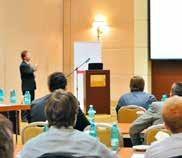


+ Advertising in the FIATA members directory, review and information (FIATA e-Flash)
+ Special Rates for FIATA publication and articles
+ Access to secretariat›s assistance
+ FIATA arbitration code
+ Use of FIATA documents
+ FIATA worldwide member connectivity
+ Talent Connect Worldwide, E-Learning

+ Discountes rates in participating in global and regional conferences
+ Asssistance in case of legal advocacy
+ Discounts for cargo/logistic events and exhibition stands
+ Discount training for NAFL members
+ Training/Certification for regional/international courses
+ Insurance at discounted rates (cargo/liability/medical)
+ Complimentary internship, Skill upgrade and Mentoring & Innovation ideas
+ Discounted supplier rates for industry products

CeMAT ASIA 2025 successfully concluded: HWArobotics collaborates with you to write a new chapter in the future of logistics
n The SLS400 series variable-size box shuttle robot system, SLS600 series fourway travelling tote shuttle robot system, and FPSS1500 series-four-directional pallet shuttle robot system remain the spotlight of the event, thanks to their high throughput, high-density storage, and flexible adaptation to multi-industry needs.
Through scenario-based dynamic demonstrations and immersive interactions, HWArobotics vividly showcased the system’s implementation achievements across multiple industries including manufacturing, e-commerce, publishing, pharmaceuticals, and fresh produce. This attracted numerous professional clients to engage in discussions, garnering widespread recognition and deepening collaboration intentions.
HWArobotics’ senior leadership team
shared in-depth insights on industry trends and technological pathways, delivering the company’s cutting-edge perspectives to industry professionals through expert analysis.
On October 30, HWArobotics and Hannover Messe jointly hosted the
‘Capturing Our Logistics with the Lens’ photography competition award ceremony at Booth L1-16, Hall W6. The event ingeniously blended the precision of logistics technology with the emotional storytelling of photography, drawing crowds who paused to participate.

AJEX opens Saudi Arabia’s first GMP-GxP compliant facilities, expanding life sciences logistics capabilities
n New Riyadh facility positions AJEX as the first logistics provider in the Kingdom with GMP-GxP compliant warehousing infrastructure
AJEX Logistics Services has officially opened Saudi Arabia’s first and only GMP (Good Manufacturing Practices)-GxP certified logistics depot. Strategically located in Riyadh, the purpose-built 3,000 square meter facility enhances the company’s capability to support the growing demand for compliant temperature-controlled storage and distribution and marks a significant milestone in the advancement of the Kingdom’s healthcare and life sciences supply chain.
GxP is an umbrella term referring to globally recognized industry best practices in the development, production, and distribution of regulated products, including Good Manufacturing Practices (GMP), Good Clinical Practices (GCP), Good Laboratory Practices (GLP), Good Storage Practices (GSP), which are widely used by global life sciences organizations.
“The only facility of its kind currently operational in the Kingdom, this investment positions AJEX as a unique partner for pharmaceutical companies seeking to enter
or expand within Saudi Arabia and the Gulf’s rapidly evolving market,” said Justyna Lehmann, Senior Director Cold Chain & Healthcare, AJEX. “With global clinical trials expanding, and the demand for regulated cold chain storage rising, our GMP-GxP certified depot in Riyadh gives local and international manufacturers a new level of confidence and capability in Saudi and the Gulf markets.”
With multiple temperature-controlled storage zones designed to maintain the integrity of sensitive healthcare products, the facility features a 2°C to 8°C chamber for the safe storage of refrigerated biologics, vaccines, and temperature-sensitive drugs, and a dedicated -20°C chamber for frozen products such as certain cell therapies and biologics. Both chambers are monitored in real time, supported by alert systems and backup infrastructure to ensure continuity and control at every stage.
The facility also features a secondary labeling room, enabling country-specific packaging and documentation, such as Arabic labeling for the Saudi market, supporting late-stage product customization and justin-time distribution models, while ensuring
traceability and documentation standards. All infrastructure and equipment within the depot have been fully validated and qualified, with mapped temperature zones and calibrated sensors. The site operates under strict SOPs, with clean zones and controlled access protocols in place to prevent contamination. Every process and procedure is aligned with both international GxP standards and the requirements of the Saudi Food and Drug Authority (SFDA), ensuring full compliance for audits, batch traceability, deviation handling, and corrective and preventive actions (CAPA).

LIMITED SPONSORSHIP OPPORTUNITIES

MARCH 2026 25 26
Yas Island, Abu Dhabi
Where the world discovers the business of event logistics
Over 32 million events annually requiring structured logistics Sustained 5.8%–6.5% CAGR, highlighting global stability and scalability Support a $1.5T worldwide events ecosystem

More than 250 million tonnes of event-related freight moved yearly

MAN TGE: The right choice when it matters
n MAN TGE is highly sought-after internationally as an ambulance and rescue vehicle
n Active orders for around 1,800 ambulance vehicles in twelve countries, of which more than 700 MAN TGE units have already been delivered
The MAN TGE has established itself as a reliable and versatile platform for the ambulance sector. MAN Truck & Bus currently has orders for a total of around 1,800 units across Europe, more than 700 units are already on the road. The orders range from Romania to Ireland and from Poland to Spain. With a combination of robust, modern technology, extensive equipment options and close cooperation with specialised body manufacturers, it has won over rescue and care services internationally.
This is particularly evident in the successful partnership with Falck, one of Europe’s largest emergency service providers, which uses the MAN TGE in several countries,
including Denmark, Germany, Poland, Sweden and Spain. The MAN Truck & Bus van has also established itself in Romania: The MAN distributor MHS Truck & Bus in consortium with the bodybuilder Deltamed, which serves as the bodywork partner and general contractor, won a project launched by the Romanian General Inspectorate for Emergency Situations for 480 ambulances over a four-year period. Since the contract began in November 2024, the first five vehicles have already been delivered, with a further 121 to follow by the end of 2025.
In the Netherlands, too, the MAN TGE has long been an integral part of the emergency services. It is used successfully by Ambulancezorg Zoetermeer (RAV Haaglanden), the UMCG ambulance service, Brabant Midden and the Dutch Red Cross, among others. The fleet in the Netherlands currently comprises around 60 vehicles. In France, too, almost 300 MAN vehicles are already in rescue service. The two largest customers are Gruau Vendée
APM and Abu Dhabi Ports highlight the important role of women leaders in project management
n To highlight the contribution of women project leaders in the region, the UAE network of Association for Project Management (APM) collaborated with Abu Dhabi Ports for an event that addressed the development and promotion of women, and initiatives required to maximise the availability of their expertise, and empower them for greater roles in project management.
A special live-streamed session from the annual ‘APM Women in Project Management Conference’ in London was held at the local event in KEZAD in Khalifa Industrial City, Abu Dhabi. The theme of the event was ‘Transform Tomorrow’, to reflect that change is constant, and how we live and work is being reshaped.
Karen Blackett, the former UK President of the global advertising company WPP, shared a compelling message with the audience on authenticity, inclusion and leadership. Blackett said: “To be successful, I needed to be myself. I couldn’t pretend to be someone else to fit in.”

and Les Dauphins.
Its high degree of customisability is what makes the MAN TGE so special. It ensures that each ambulance can be tailored precisely to the needs of patients and rescue workers. For example, ventilators, defibrillators, wheeled stretchers with bases, infusion stands, oxygen cylinder installations, vacuum mattresses, cardiac chairs and orthopaedic stretchers can be easily integrated.

The event was attended by Abu Dhabi Ports management and staff; and members from APM regional network including Miriam Al-Alawi, APM Deputy Network Lead; Ciaran Sloan, Senior Project Manager at CSQ; Gert Kloeck, Co-Founder of Kairos; Sophie Tannous, Director of Business Development, Colliers; and Sally Roche, Finance Manager, Hilton.
APM member Sophie Tannous, said: “As a FAPM member, I am proud to represent the voice of women in the regional project management sector.
Women in the UAE are increasingly active and empowered, especially as rights for women are equal to men’s, thus fostering an environment for professional growth for both. There are growing opportunities for women in project management in diverse fields like construction, technology, energy and healthcare. Women bring more intuitive thinking and values of empathy and compassion to the table. However, it is important for companies to embrace HR policies around work-life balance, to retain women in the project management workforce.”
SelfDrive Mobility launches “SIA” region’s first conversational AI for car rentals
n SelfDrive Intelligence Assistant (SIA) becomes the region’s first commercially launched conversational AI for car rentals, supporting 40+ languages and setting a global benchmark for human-like, intelligent booking experiences
SelfDrive Mobility, the UAE’s homegrown smart mobility tech innovator, has announced a groundbreaking milestone with the commercial launch of SelfDrive Intelligence Assistant (SIA) — the country’s first multilingual, AI-powered car rental reservation engine designed to revolutionize how customers discover and book cars. This marks a defining leap forward for the regional and global mobility sector.
Accessible directly on the SelfDrive Mobility website and mobile, SIA introduces a new era of intuitive interaction. Users can search, compare, and complete their bookings simply by texting in their preferred language — making each interaction faster, smarter, and more personal.
Soham Shah, Founder and CEO of
SelfDrive Mobility, said: “Today it’s a step forward into the future of mobility. SIA is the first commercially deployed conversational AI in the car rental industry, capable of transforming what used to be a multi-step process driven by UI /UX complications into a fluid, human-like dialogue. Whether a customer chooses English, Arabic, Mandarin, or any regional language, SIA makes the booking experience feel instinctive, intelligent, and personal.”
Powering a new era of mobility intelligence
SIA’s conversational intelligence spans more than 40 languages — including English, Arabic, Hindi, Mandarin, Malayalam, Russian, Tamil, Marathi, and Bengali — making it one of the most inclusive mobility technologies ever launched. Trained across more than 2.5 million user sessions, it delivers high contextual understanding, adaptive recommendations, and real-time personalization aligned to each user’s

behavior. “SIA blends intelligence with intuition,” Shah added. “It listens, understands context, and responds instantly, turning complexity into conversation.”
Seamless, secure, and instant payments
SIA is built with customer confidence and convenience at its core — ensuring simplicity, trust, and speed in every booking. With its streamlined reservation journey, SelfDrive has introduced intelligent ‘Hot Keys’ — AI-powered prompts that make the user experience up to three times faster.
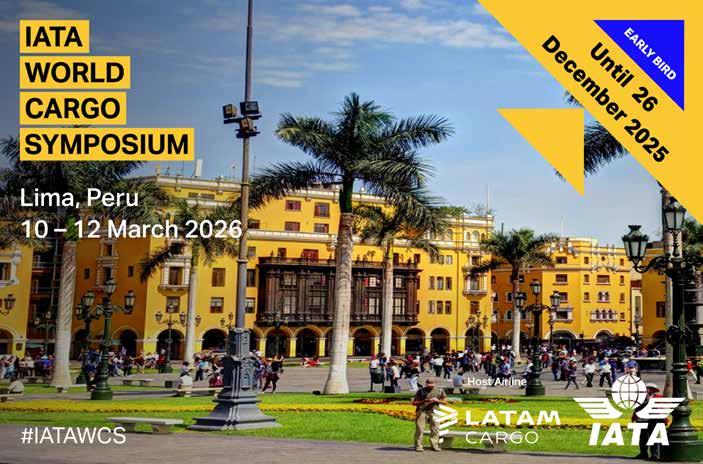
“Prioritise what truly matters, delegate effectively, and protect your focus.”
Tania Galli, Legal Director at Universal Africa Lines (UAL), a shipping line specialising in serving the oil and gas sector and currently driving expansion from West Africa into the Caribbean and Latin America. Galli is passionate about the maritime industry, she excels at navigating complex legal challenges while connecting people, teams, and continents. Known for thriving in international collaborations, Galli combines expertise with a genuine love for bridging borders through shipping. We navigate her everyday terrain in this crisp interview.
Abigail Mathias: What’s your typical day like?
Tania Galli: Despite not being a morning person, I wake up early in the morning to send the kids off to school.
AM: Are you a coffee or tea person?
If so, how many cups a day?
TG: I try to limit my intake. One really good espresso before lunch, water and then chamomile tea in the evening. Cheeky coke zero is a treat for more intense afternoons.
AM: What do you do to keep yourself fit?
TG: A good 6 to 10 km walk in the morning, listening to podcasts or catching up with friends. Evening Muay Thai classes to take the extra stress off on a weekly basis.
AM: What time do you break for lunch?

AM: Around what time of day do you wrap up work at the office?
TG: Between 19.00 – 20.00 depending on the days’ programme. Occasionally I do have late Teams meetings to accommodate different time zones but that is the nature of international business. However, as a matter of principle at 20.00 my phone automatically goes on “do not disturb” to allow to concentrate on family time.
AM: When and to which location is your next holiday?
TG: Currently trying to align schedules for a quick girl’s trip to Sri Lanka.
AM: What advice would you’d give other business professionals juggling time?
TG: Prioritise what truly matters, delegate effectively, and protect your focus by scheduling uninterrupted time for your most important tasks.
TG: Generally lunch is later around 14.00 Dubai time – so to coincide with Europe lunch time. When weather permits, I try to have it outside to get some extra fresh air or to catch up with friends or acquaintances.
AM: How do you unwind in the evening?
TG: I do enjoy cooking so when work timing permits, I like to let loose in the kitchen along with a Master Chef episode. Otherwise, nothing beats an evening swim.
AM: To me and our association
Global Supply Chain Magazine is…
TG: A valuable platform for sharing insights, fostering collaboration, and staying informed about the latest trends shaping the logistics and supply chain industry.
AM: When do you catch up on world/business events?
TG: During my morning walk. Good quality podcasts and news updates keep me going before my coffee.
AM: What do you hope to achieve in the logistics arena in the next five years?
TG: Over the next five years, I aim to enhance our efficiency by reinforcing compliance standards and implementing robust internal procedures to optimise workflows, strengthen team coordination, eliminate redundancies, and enable people to dedicate their time in the most effective and impactful ways.




